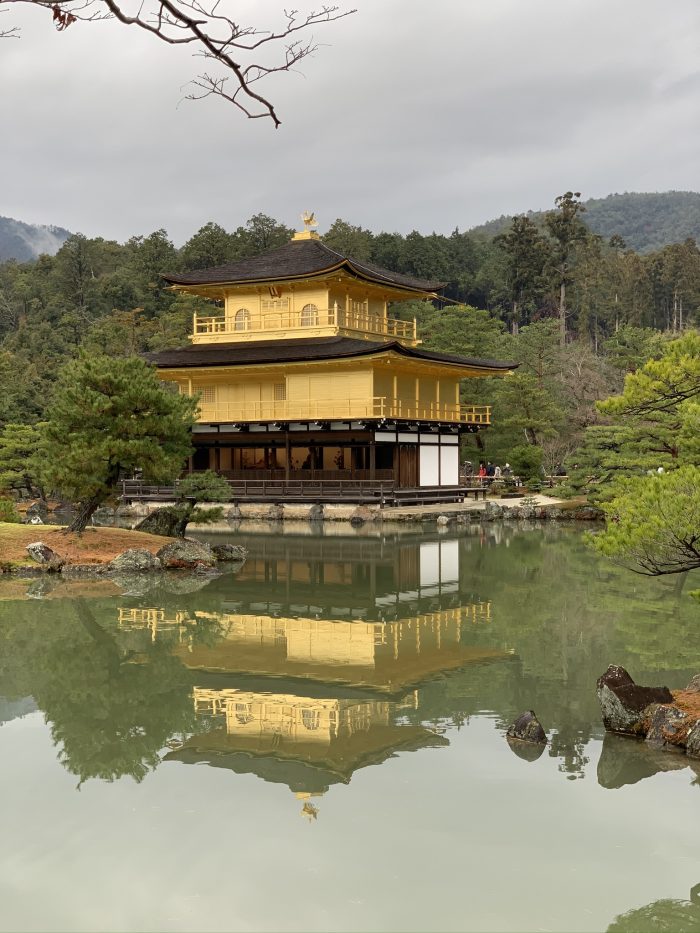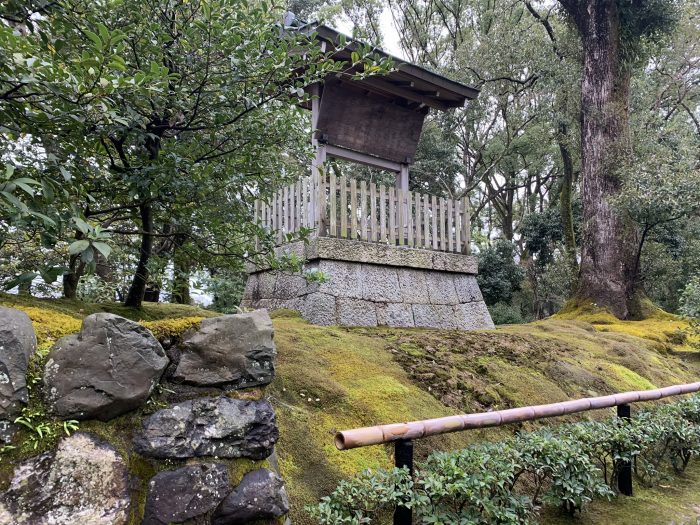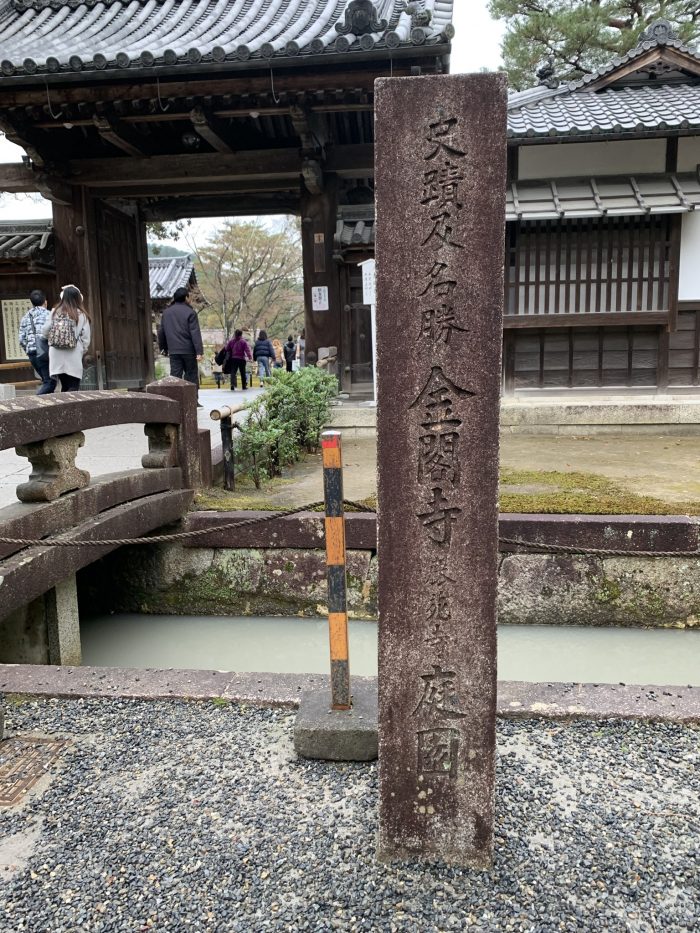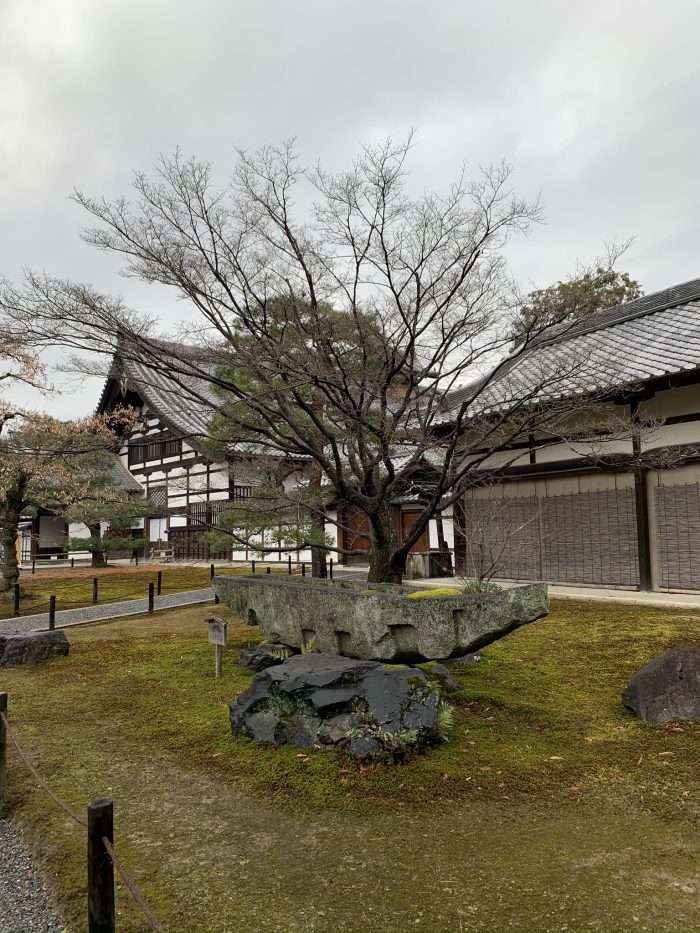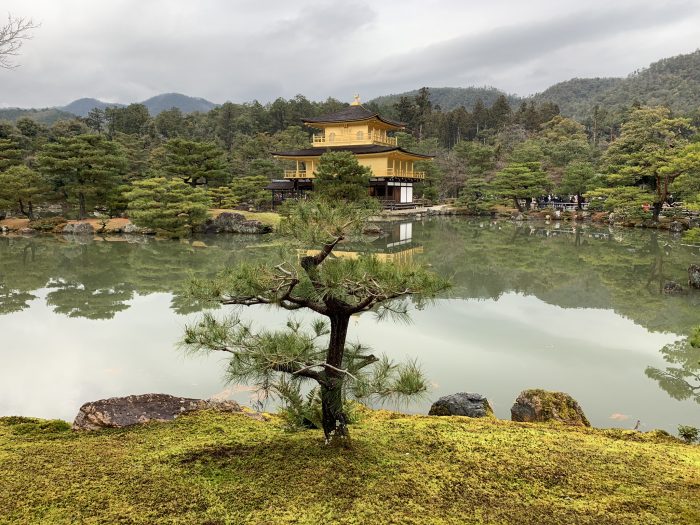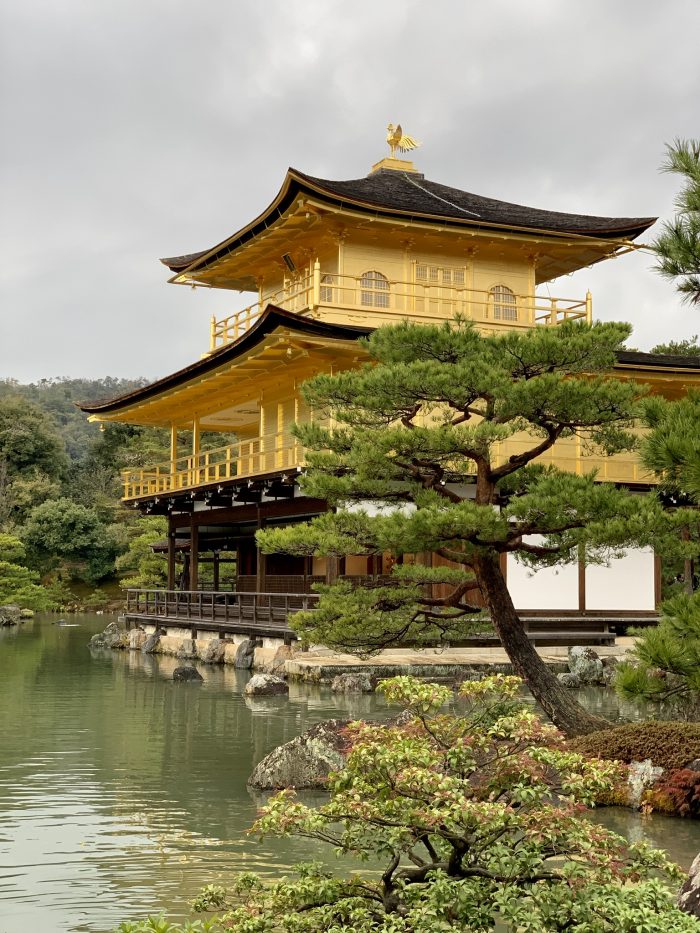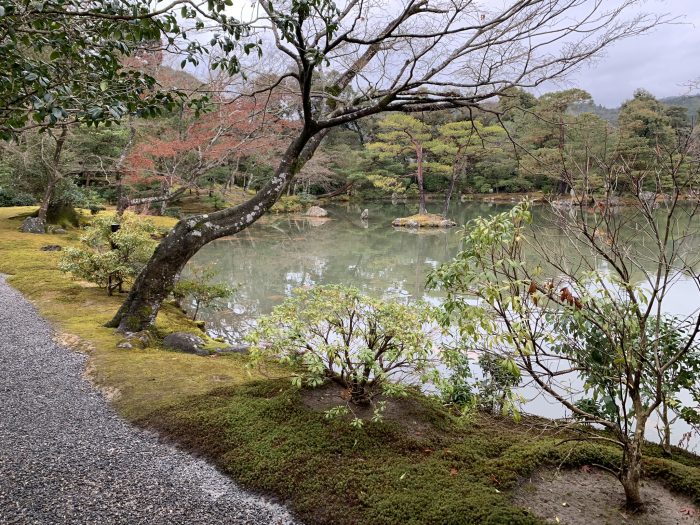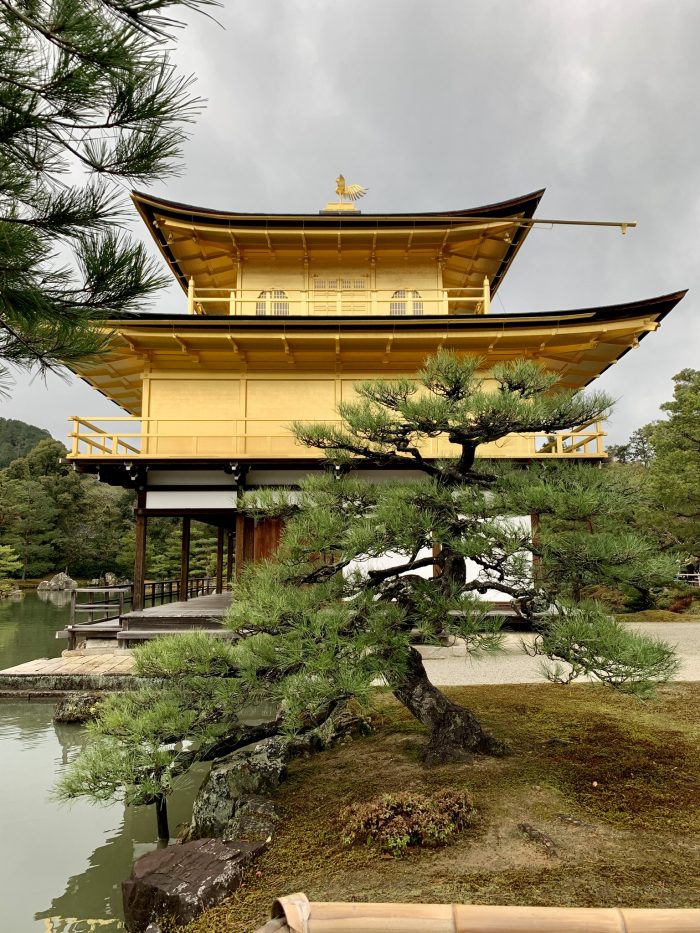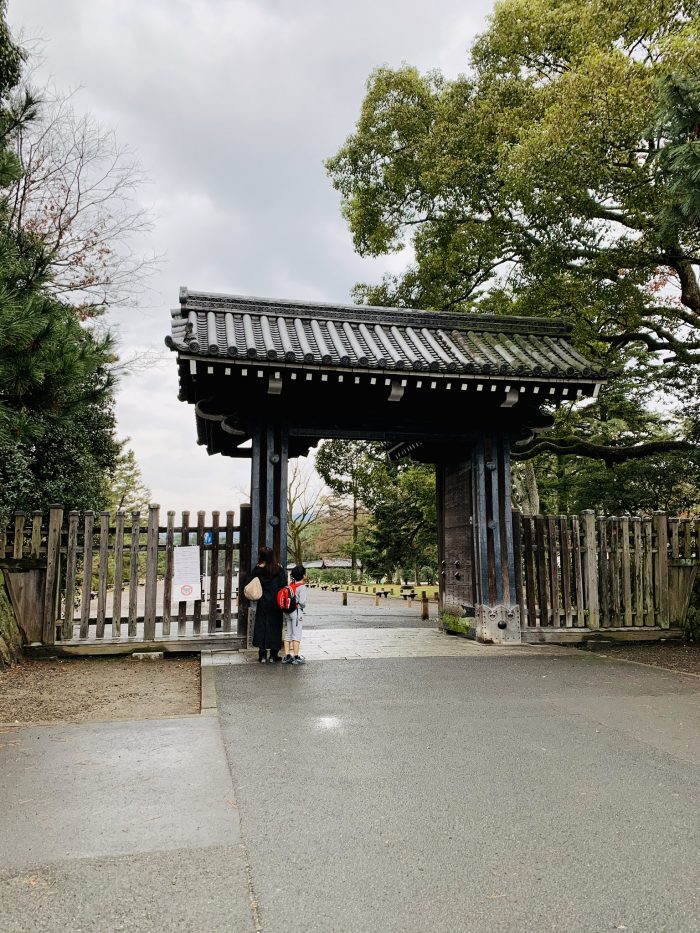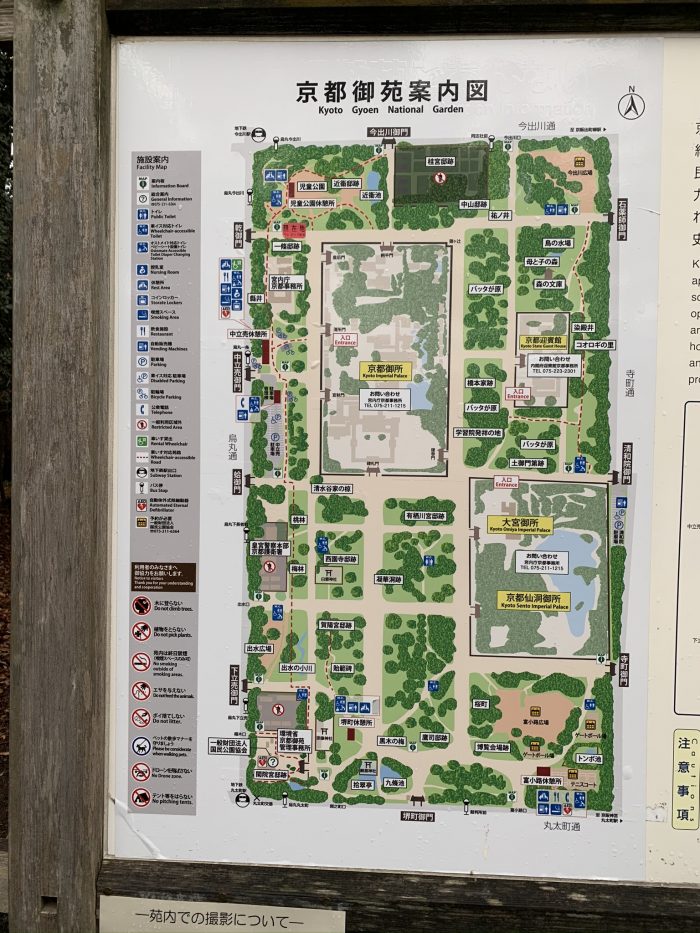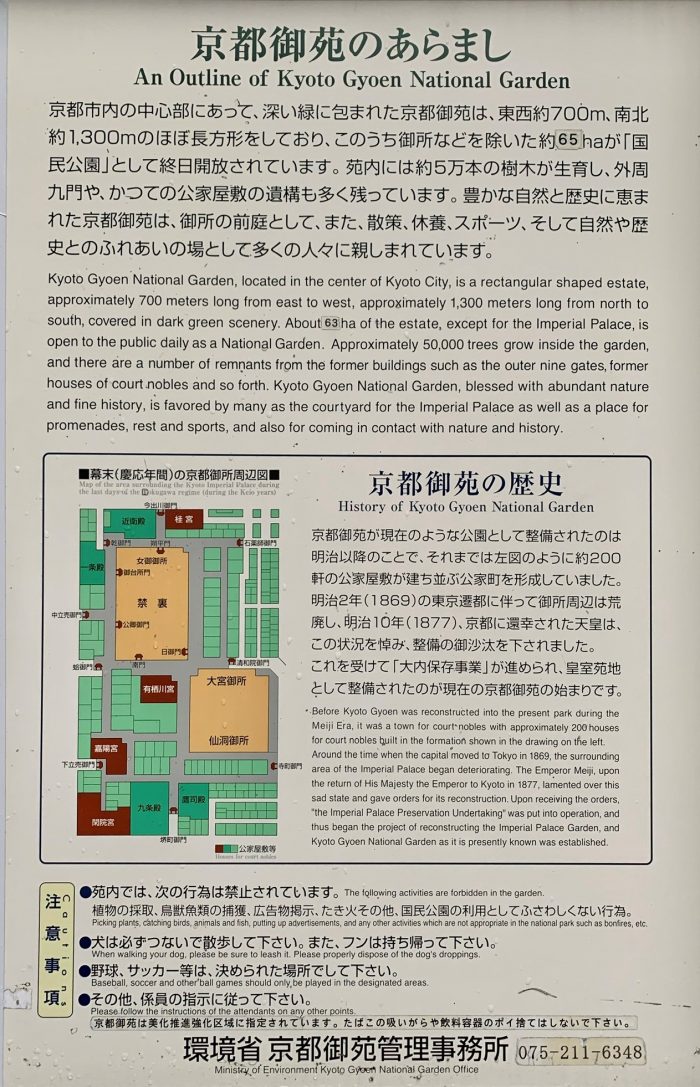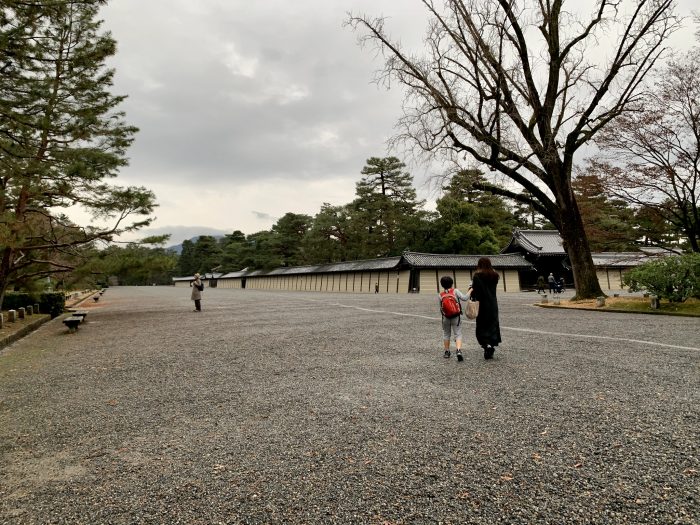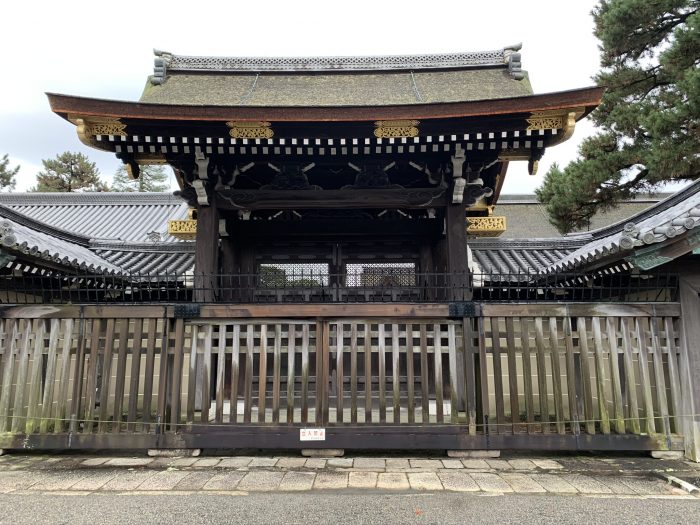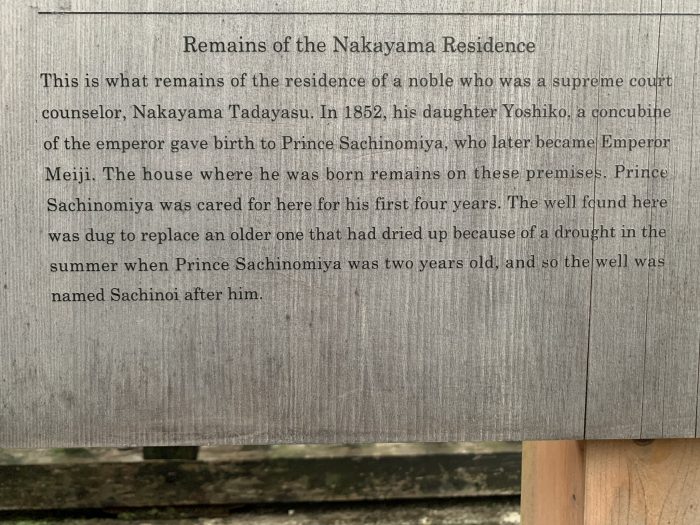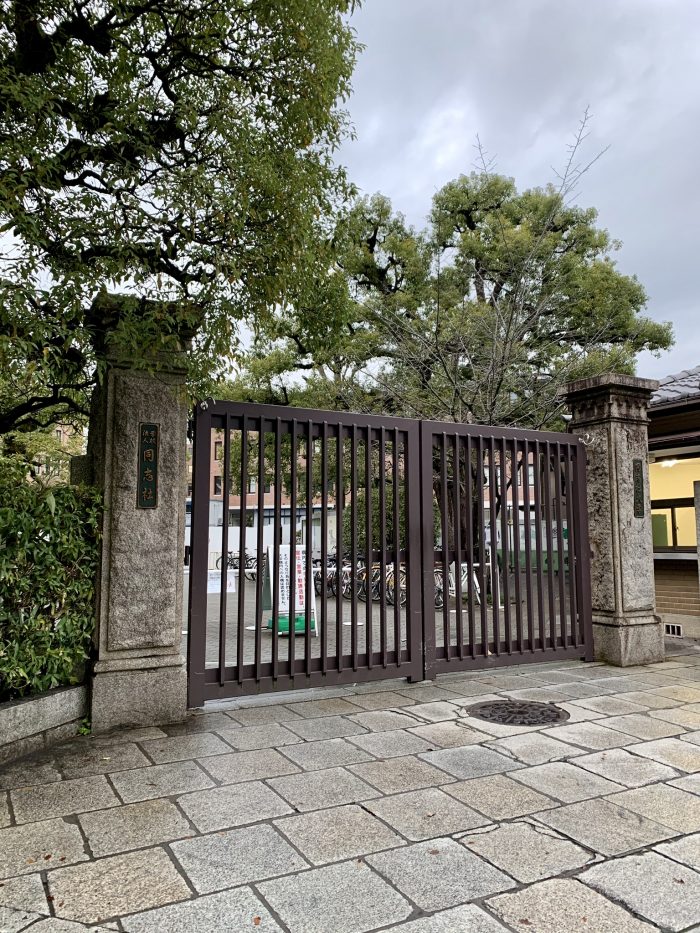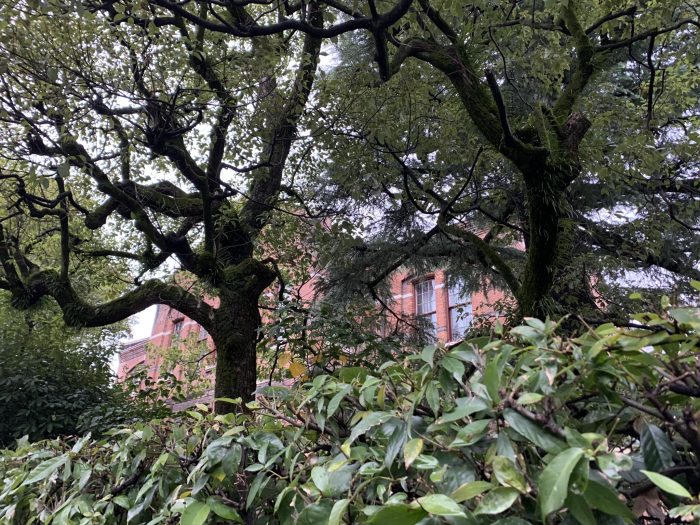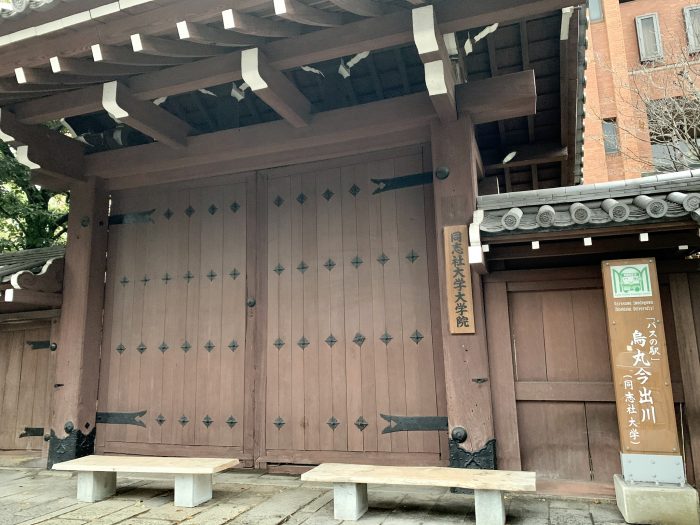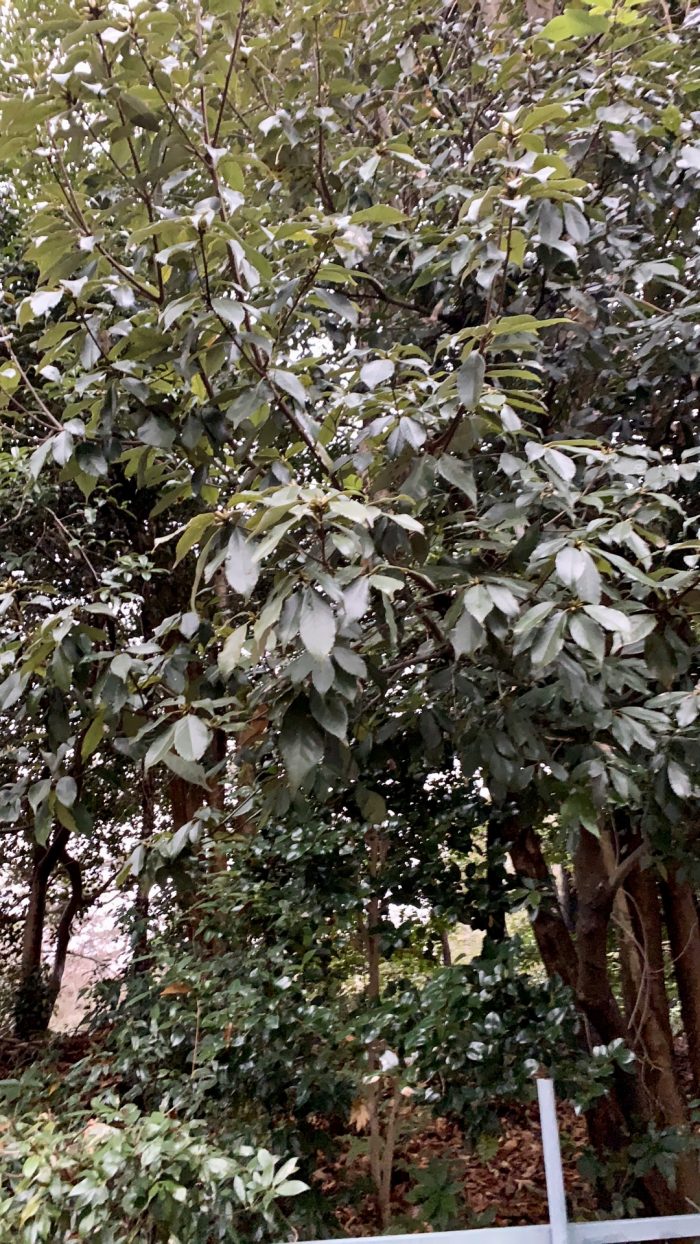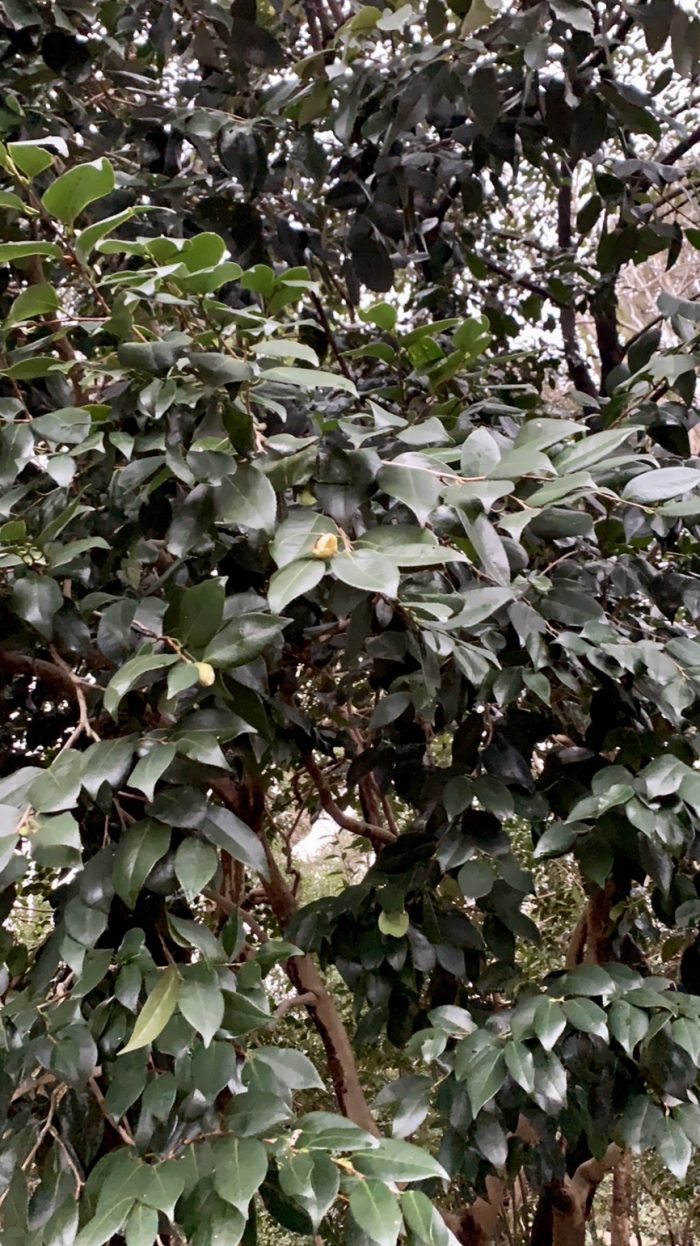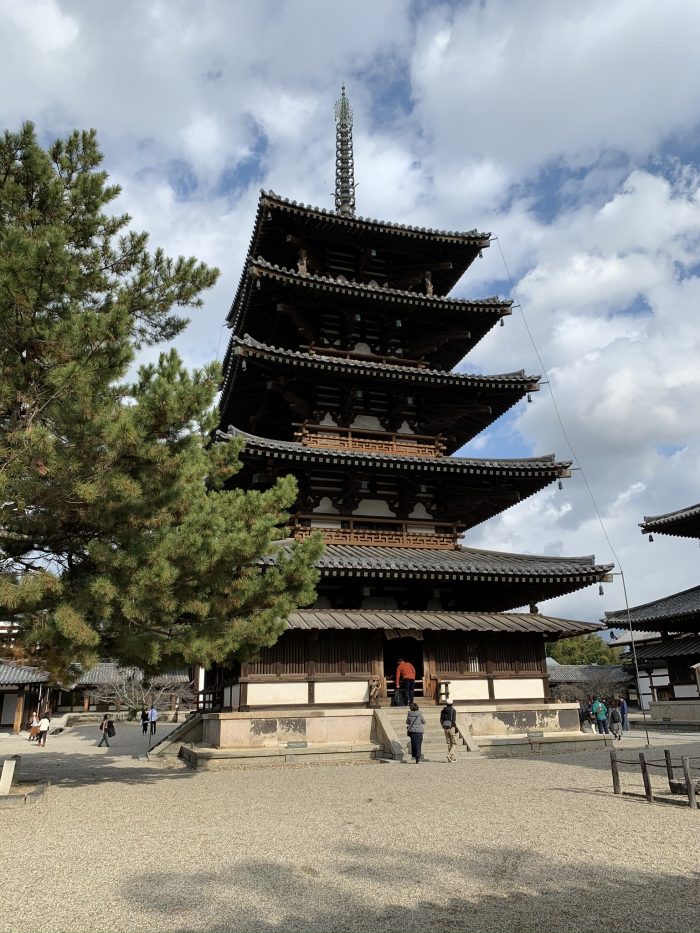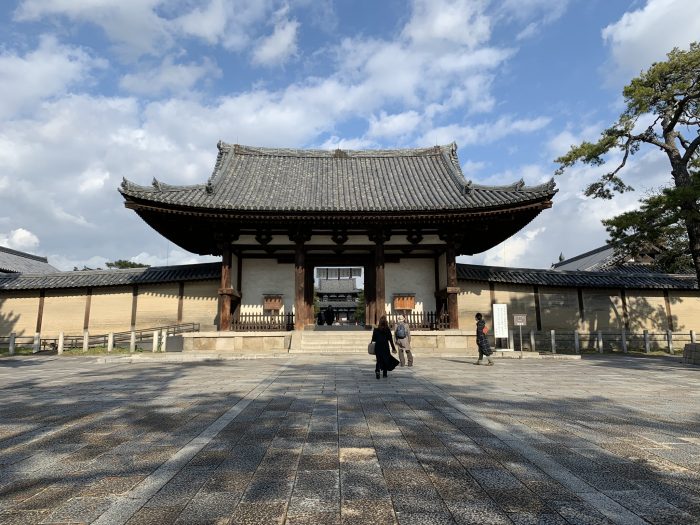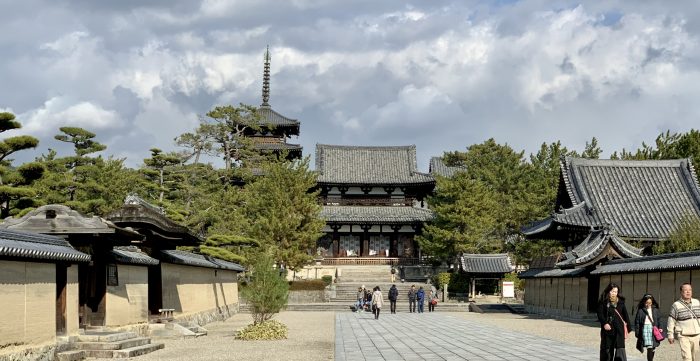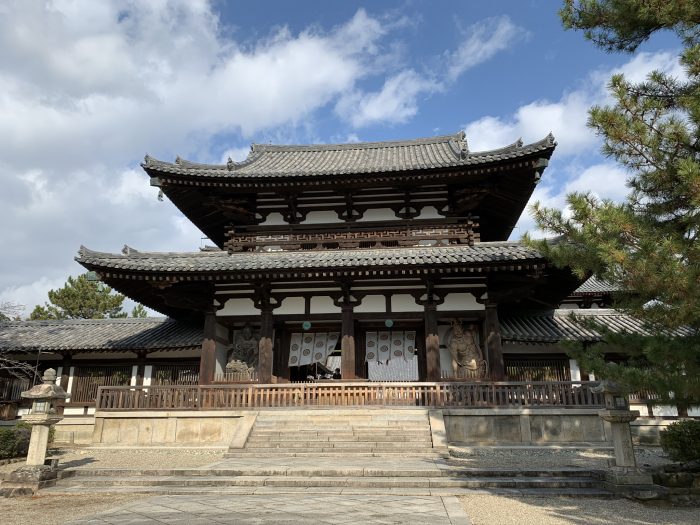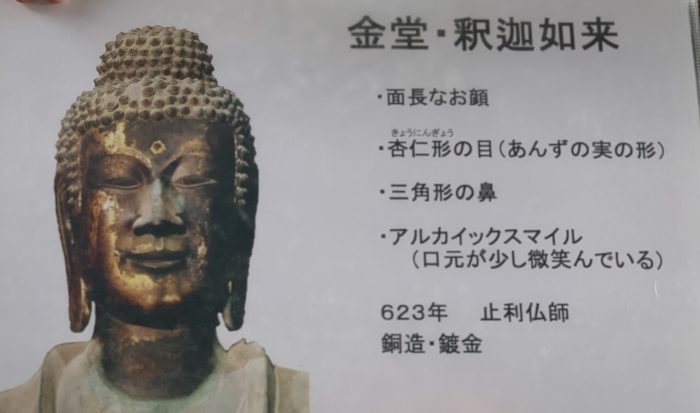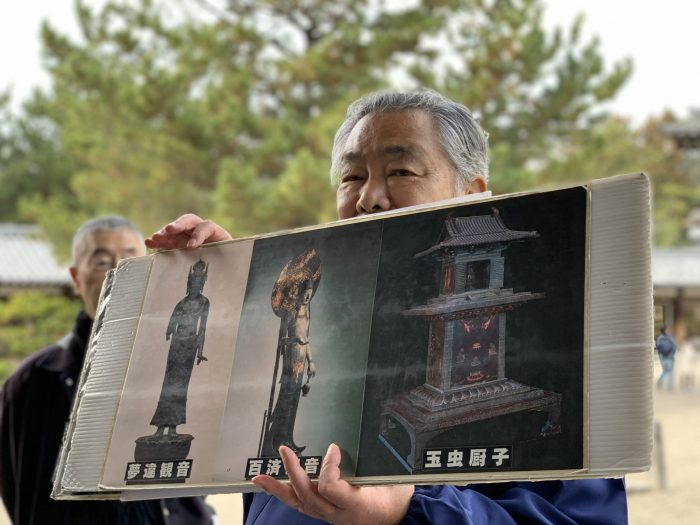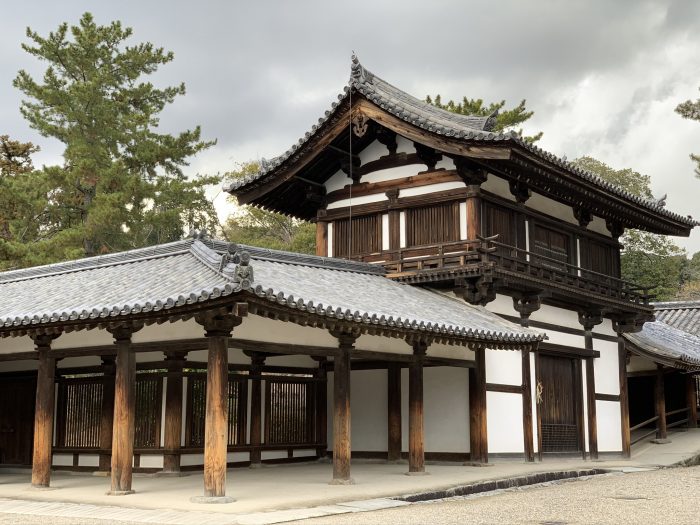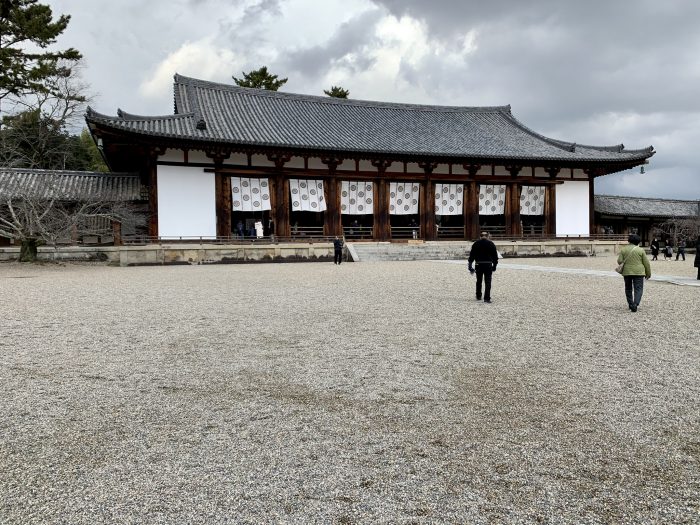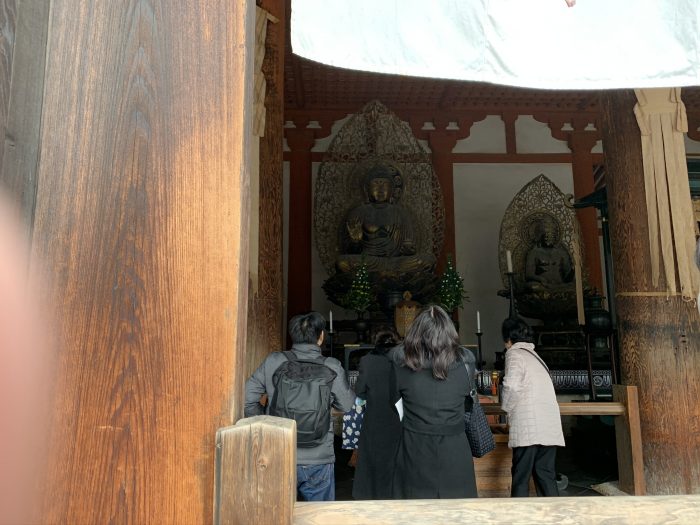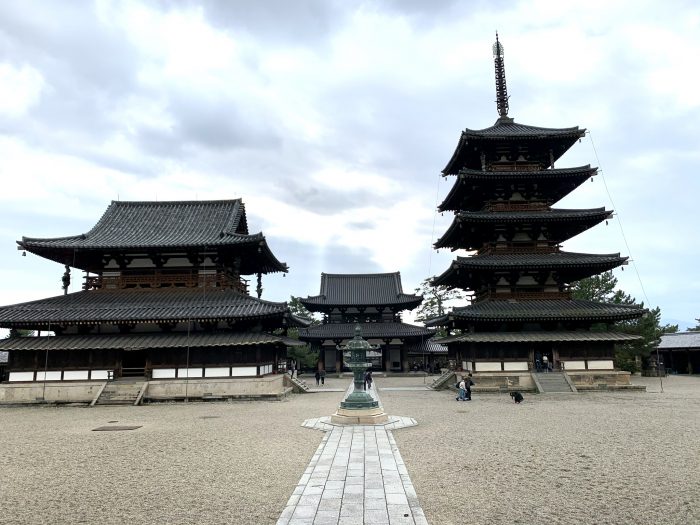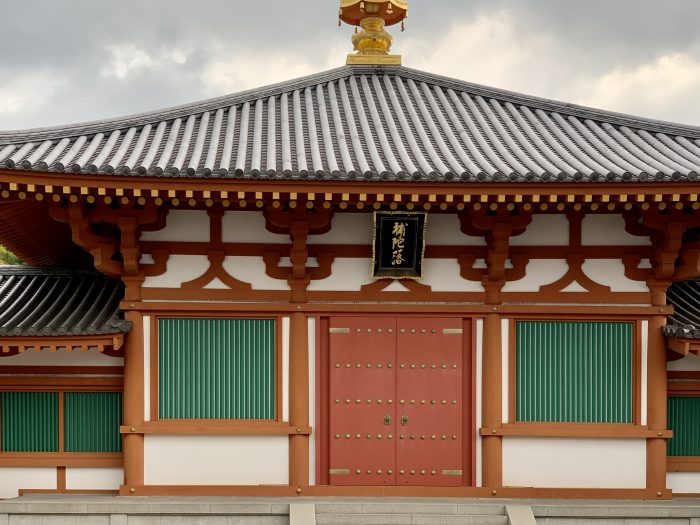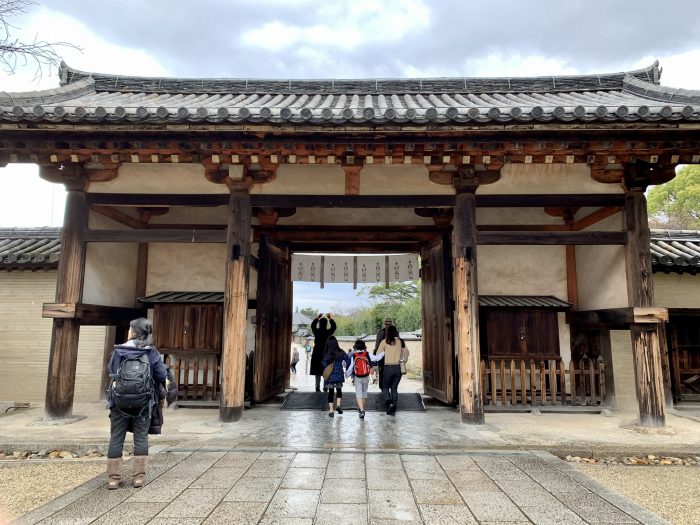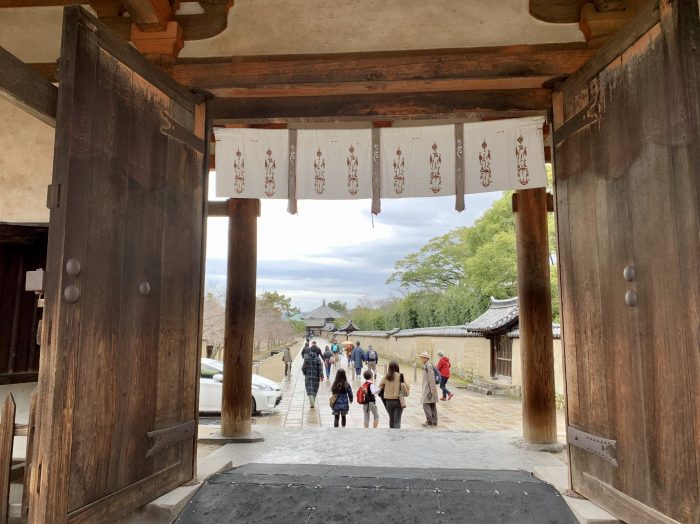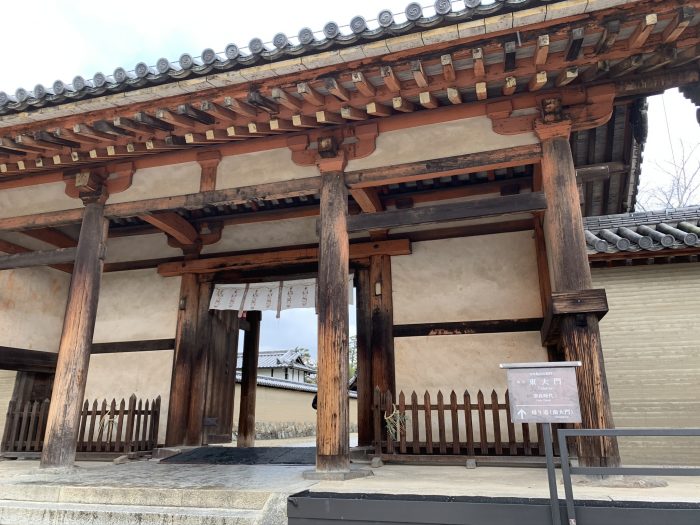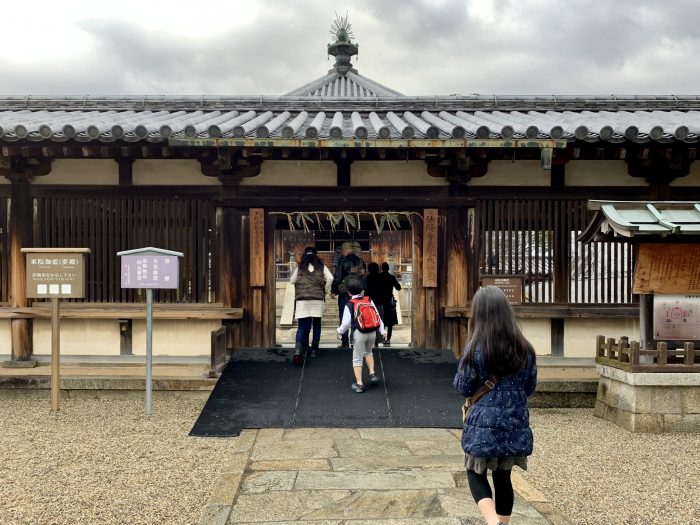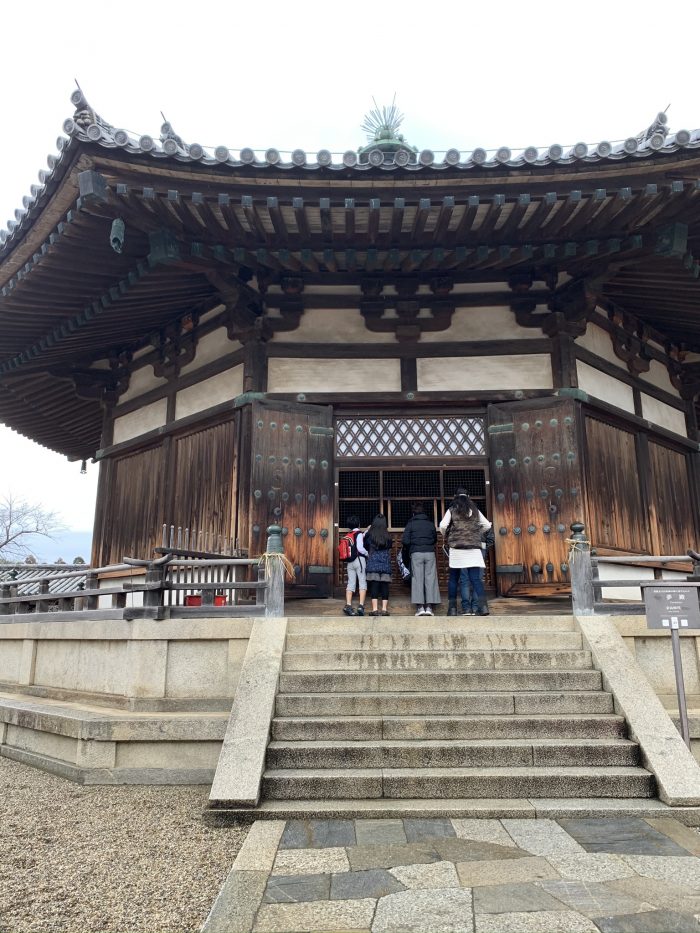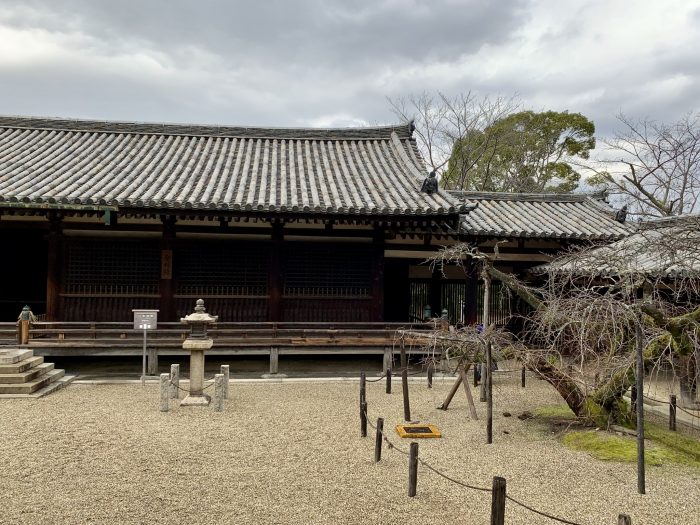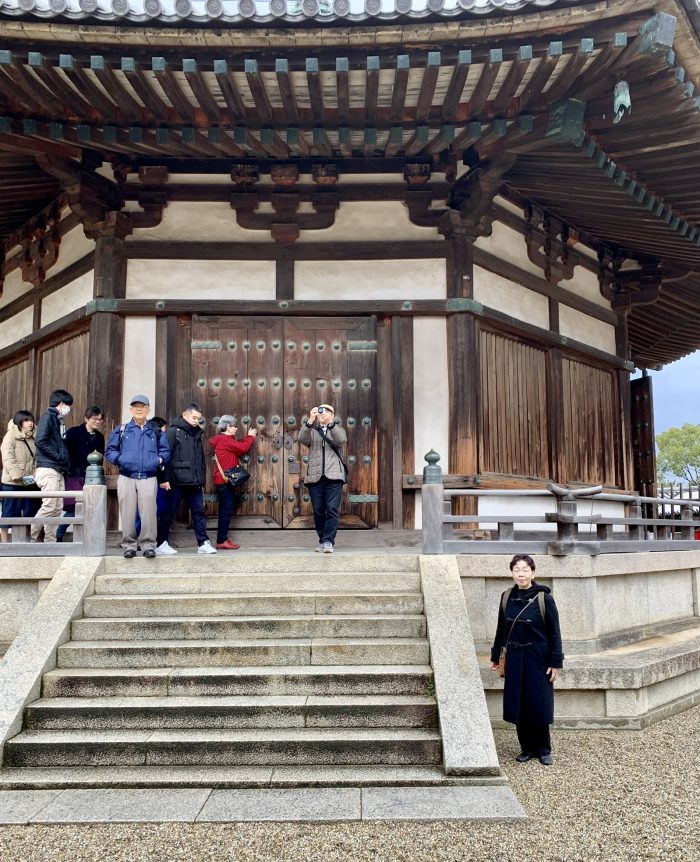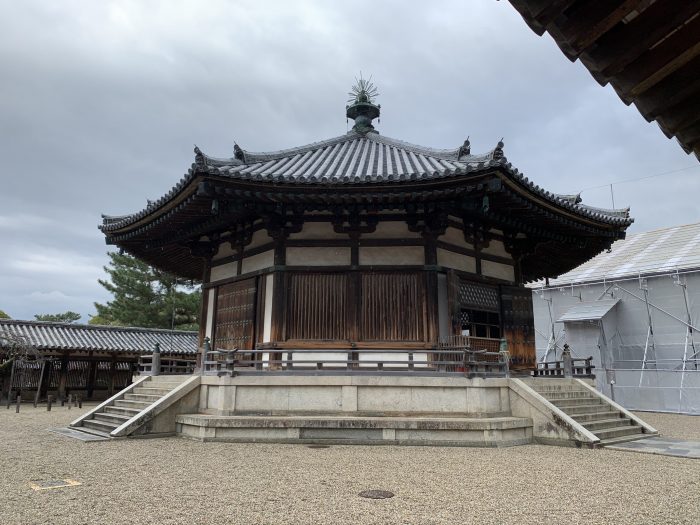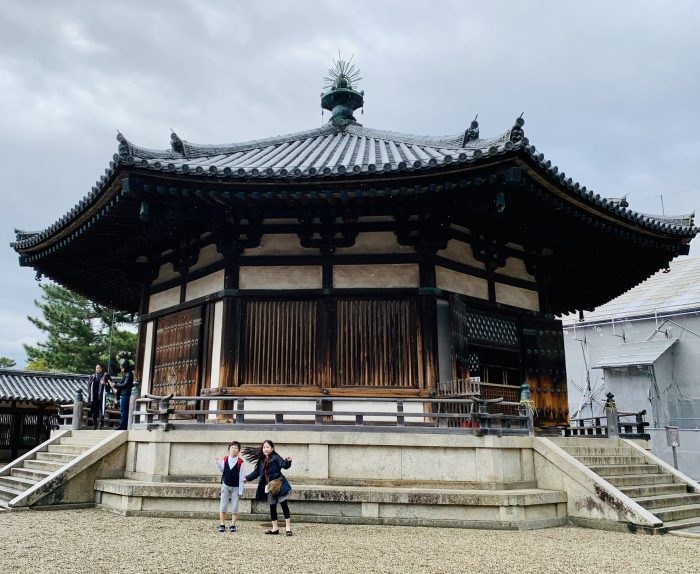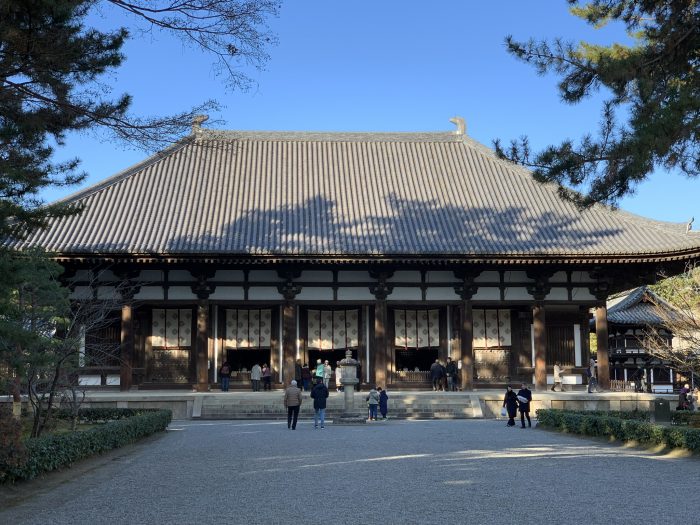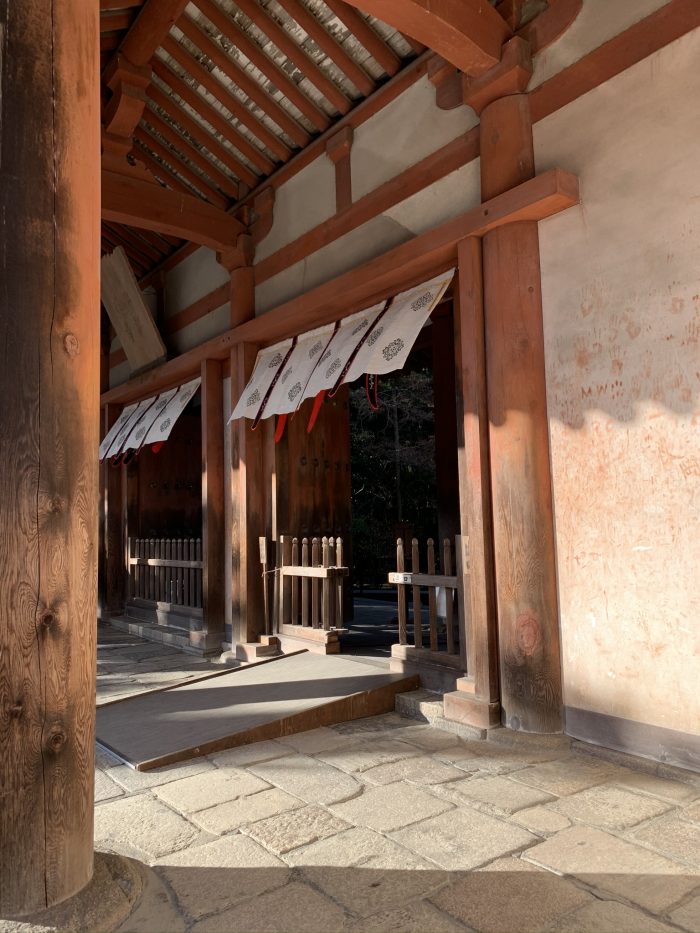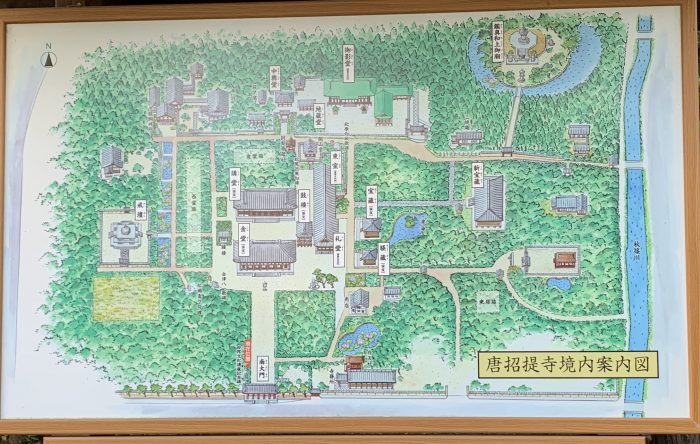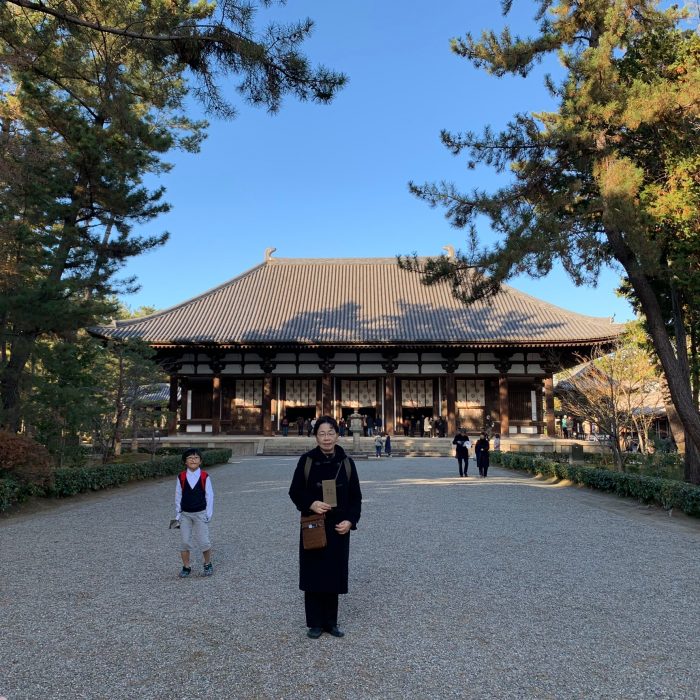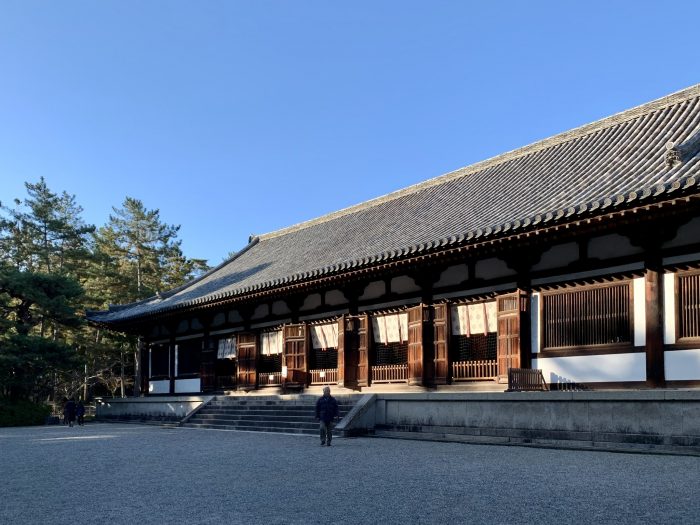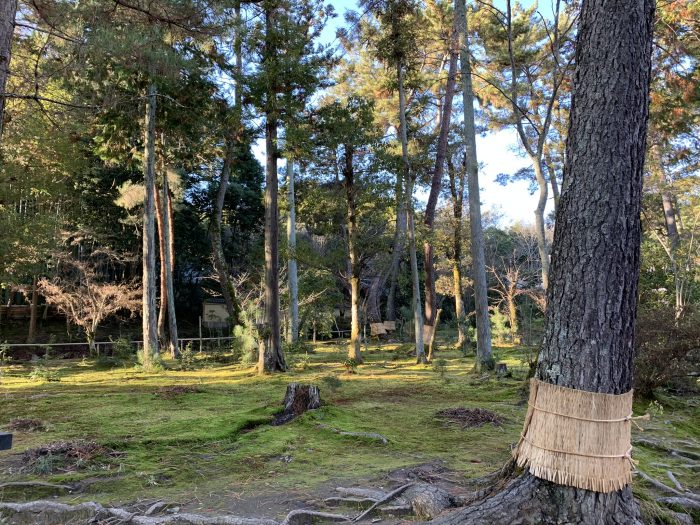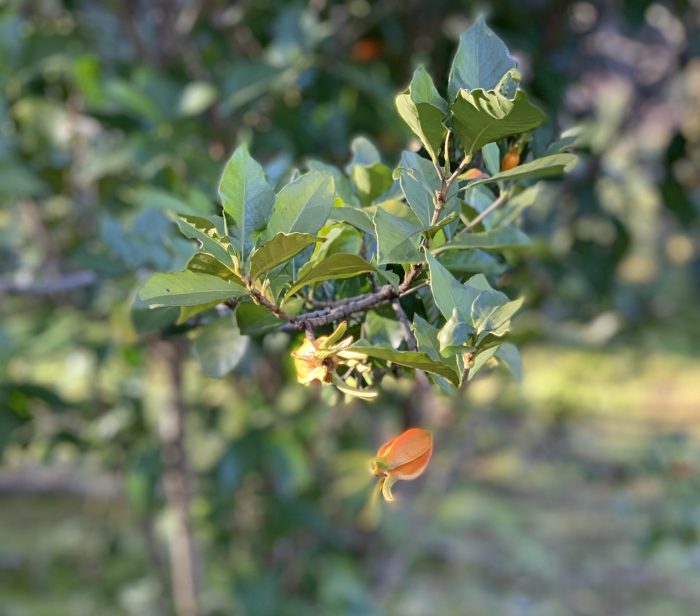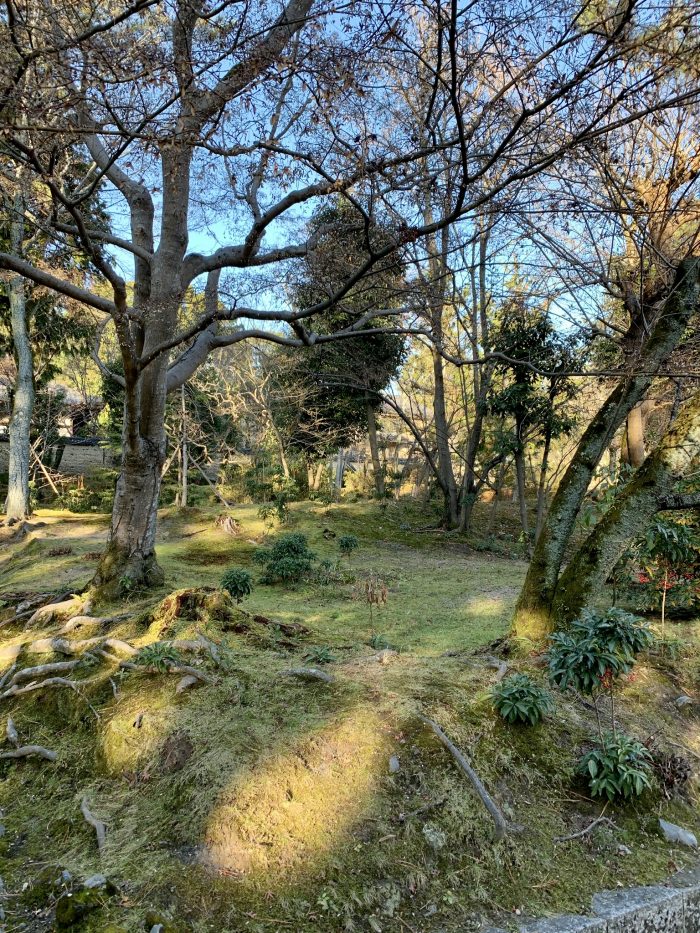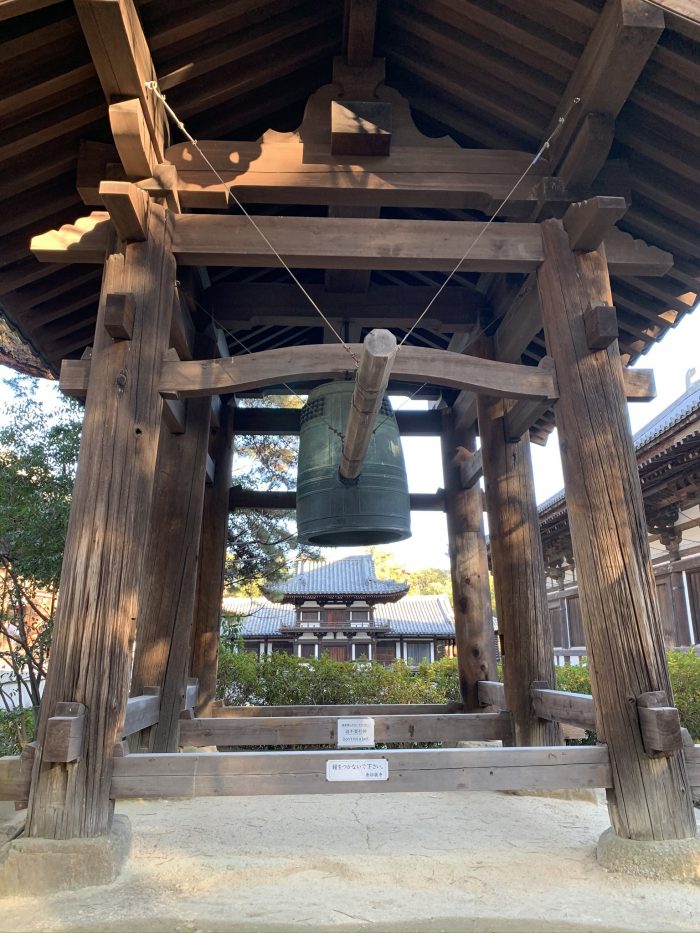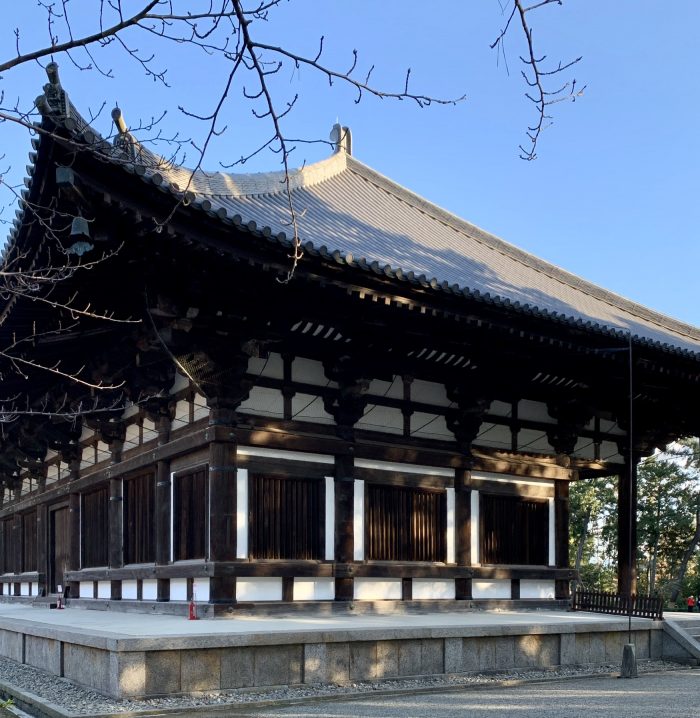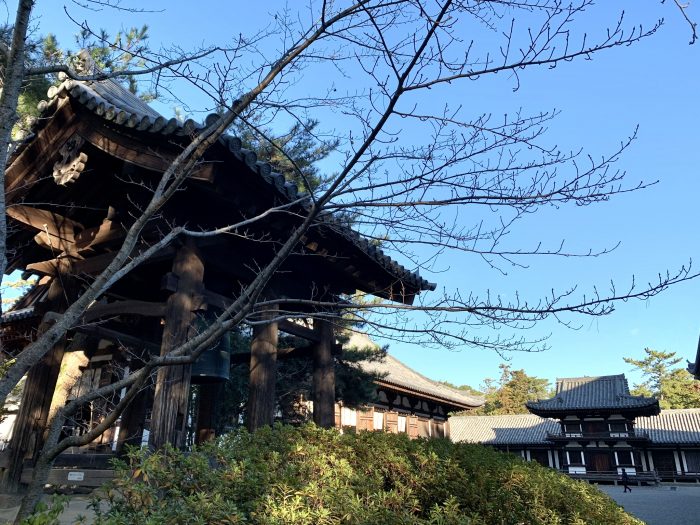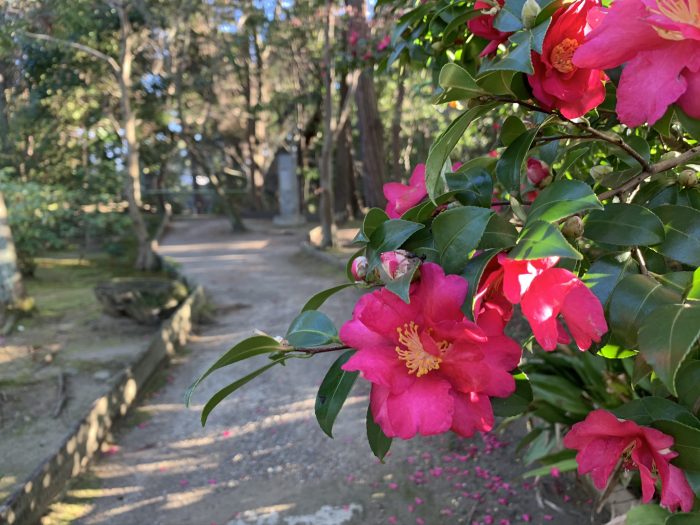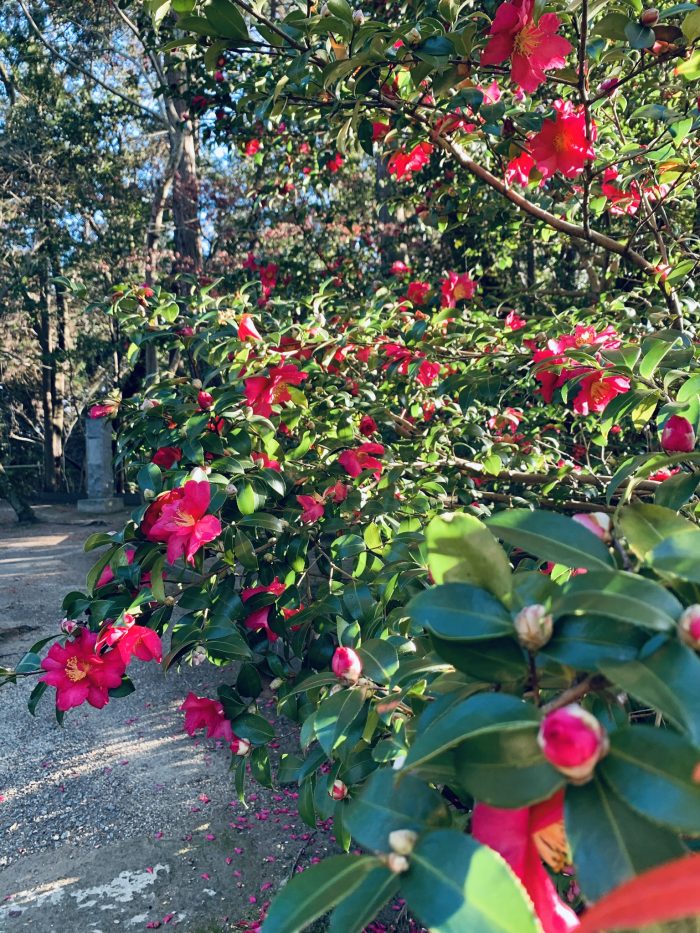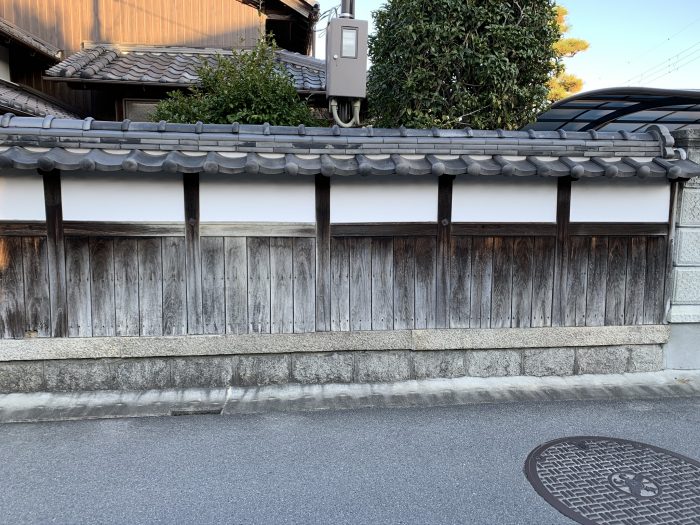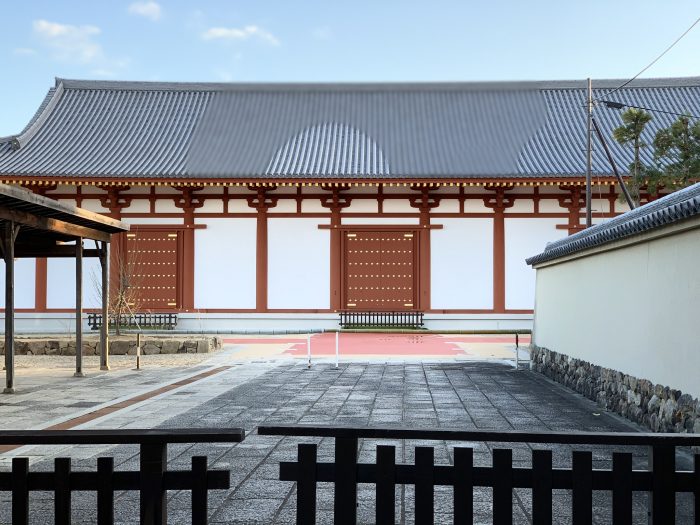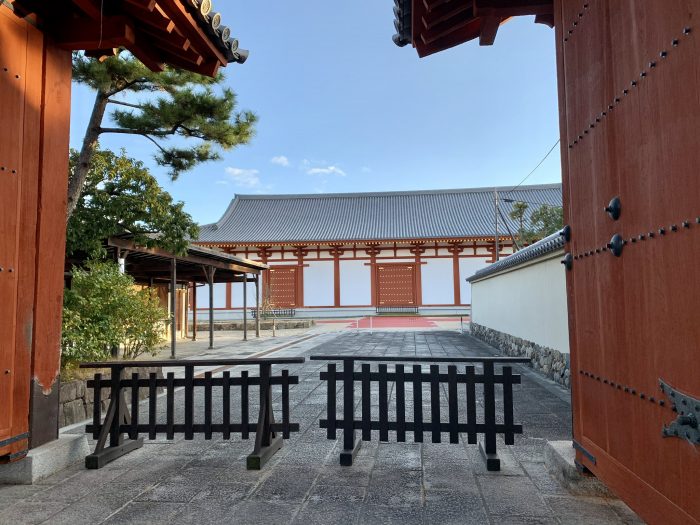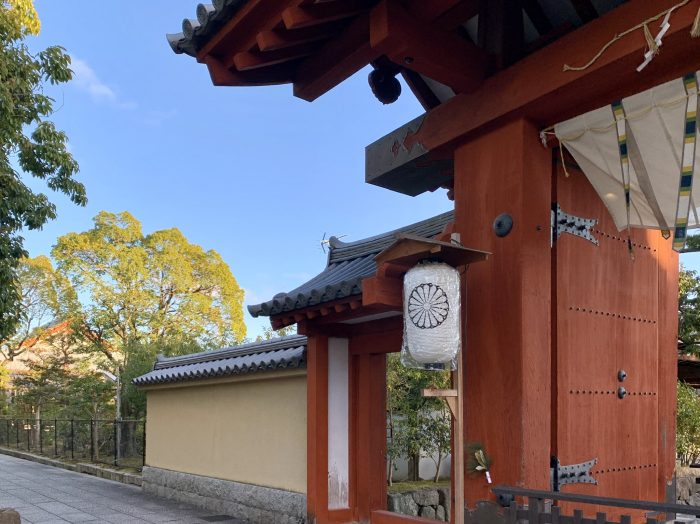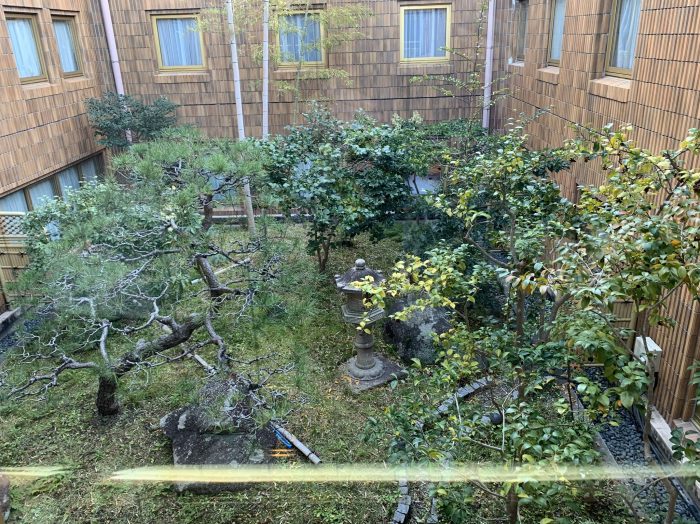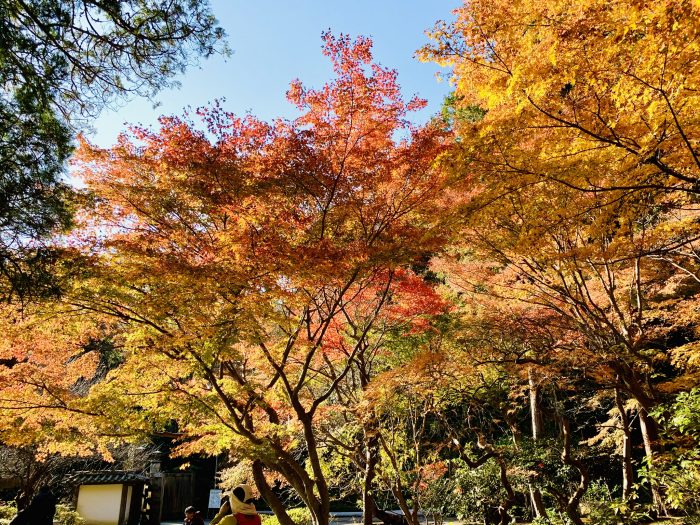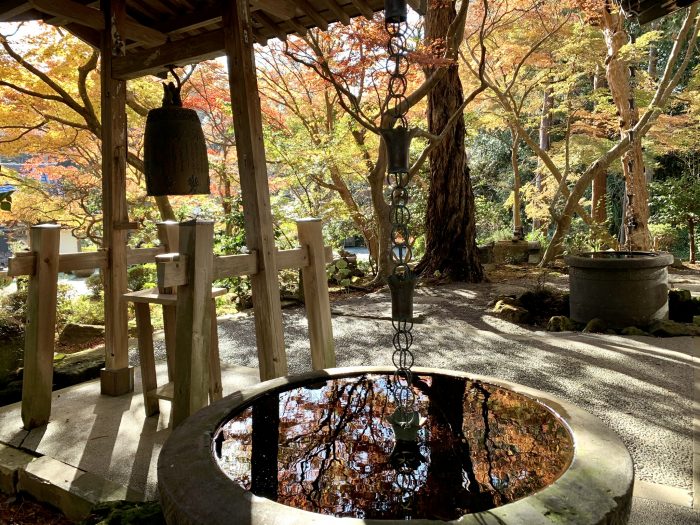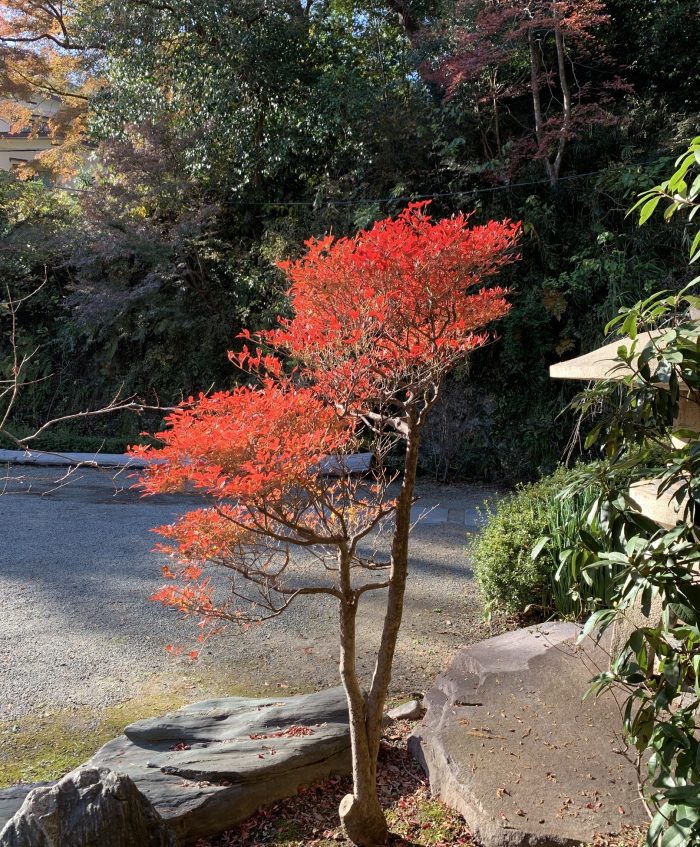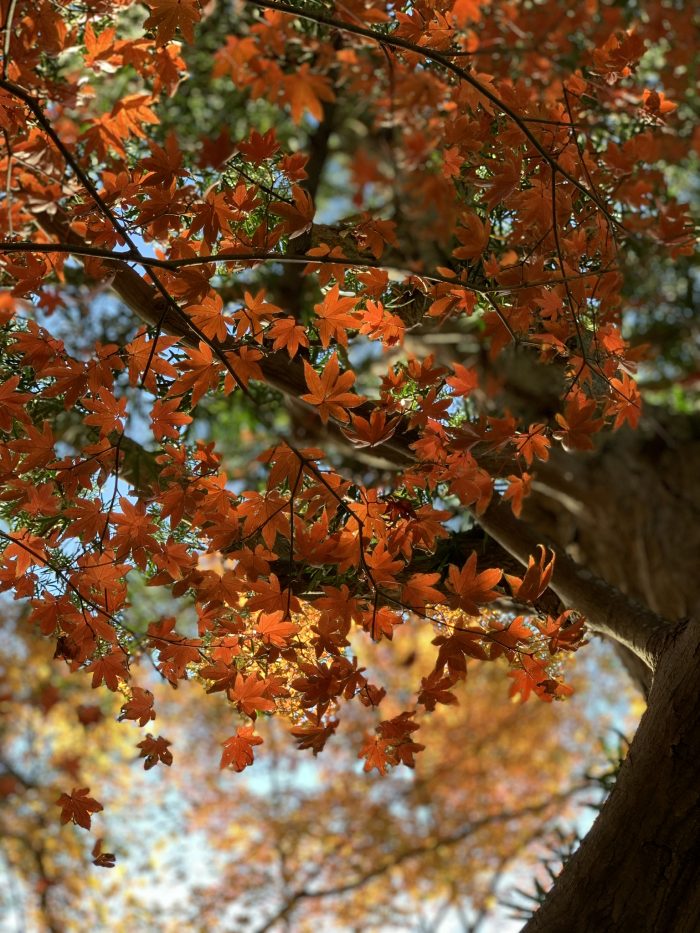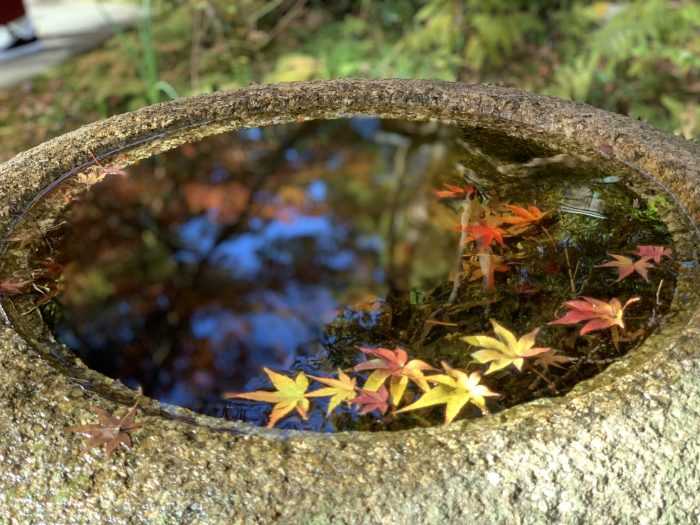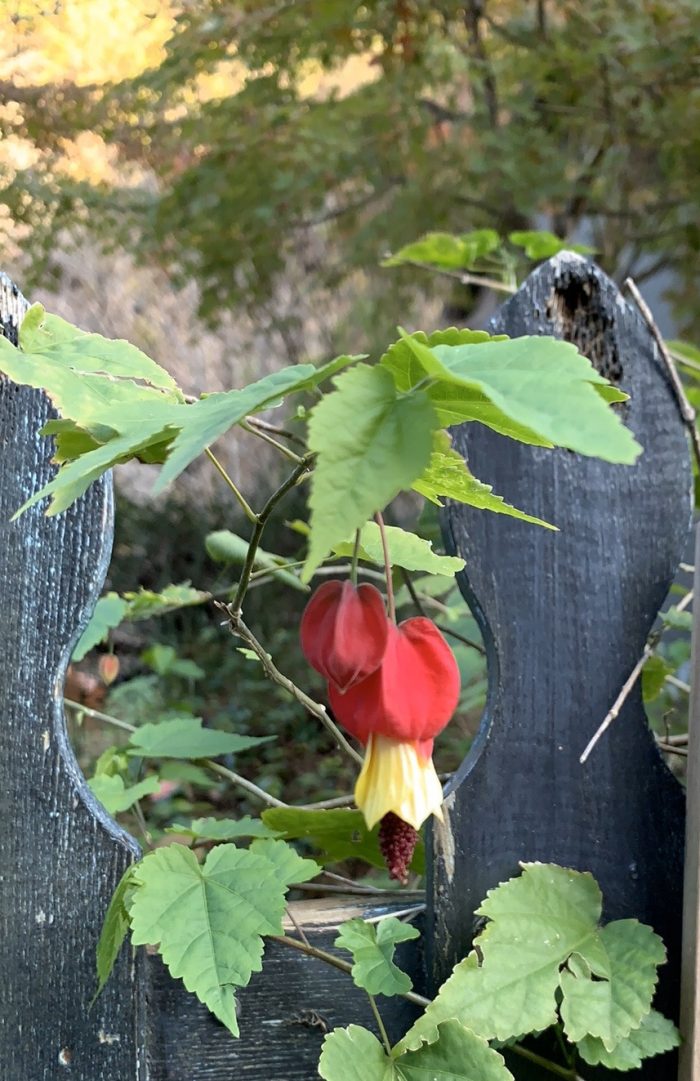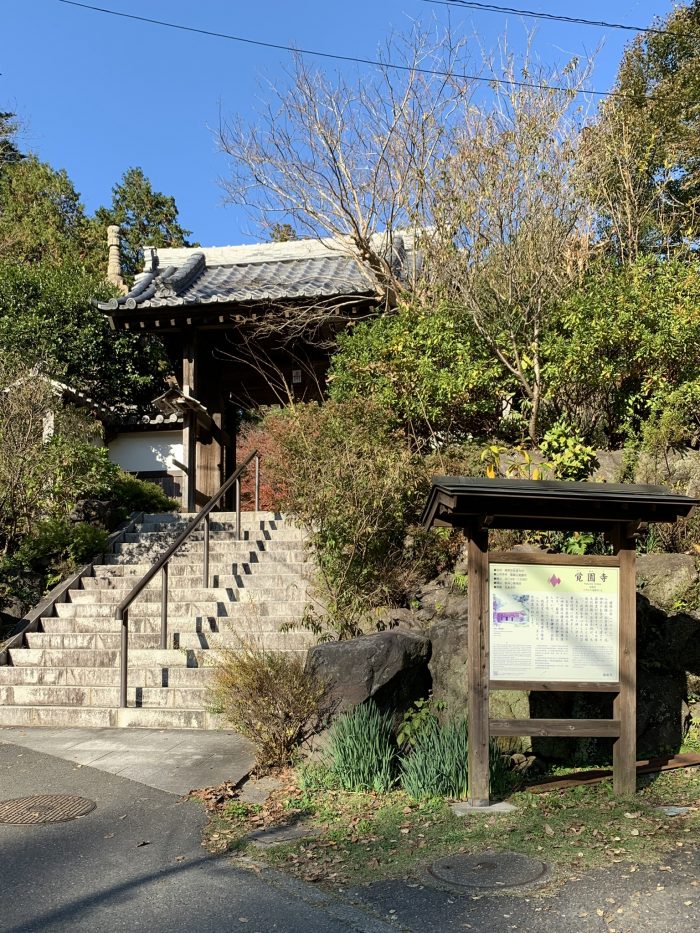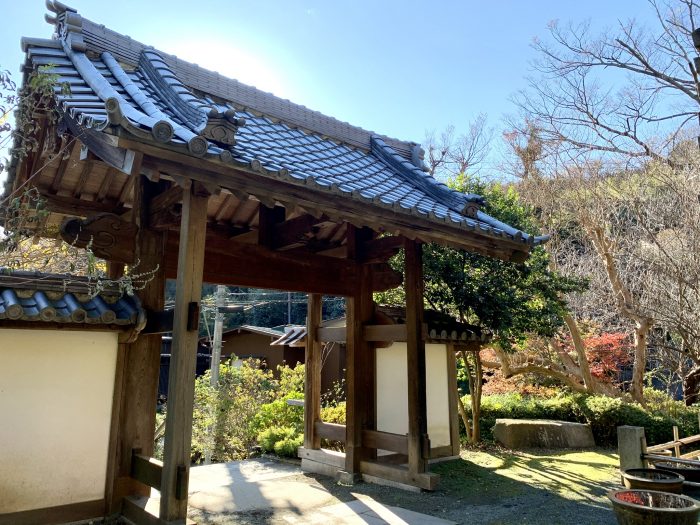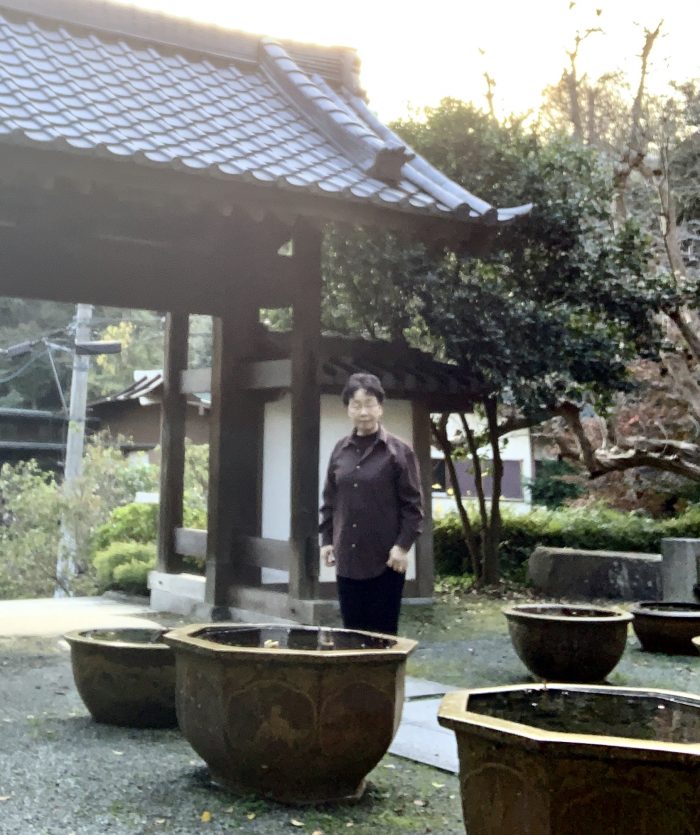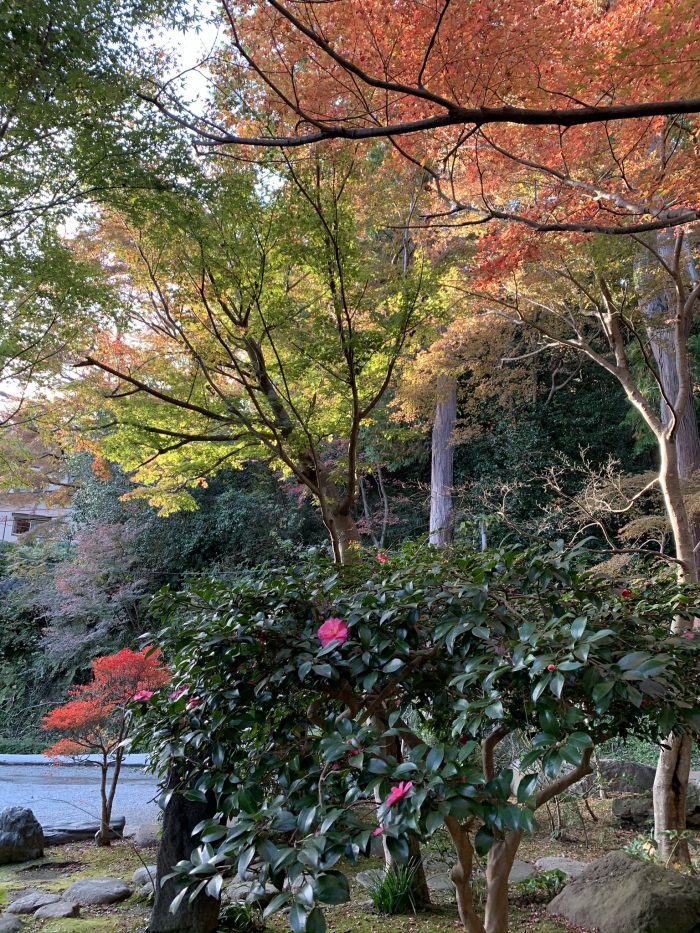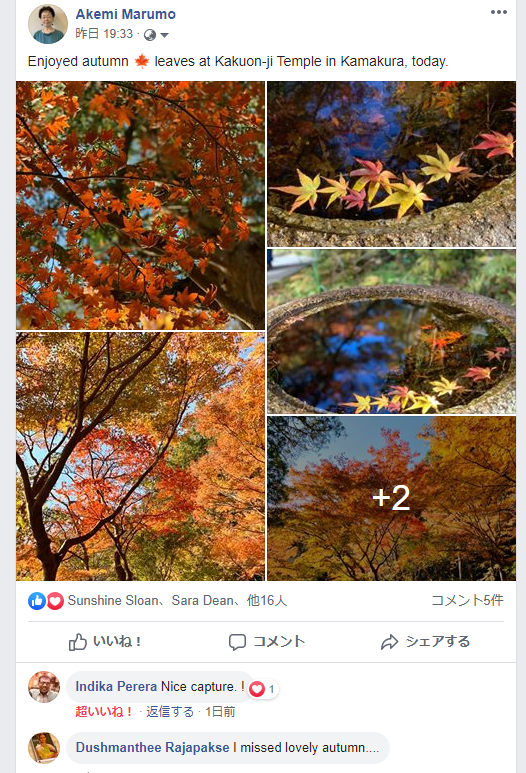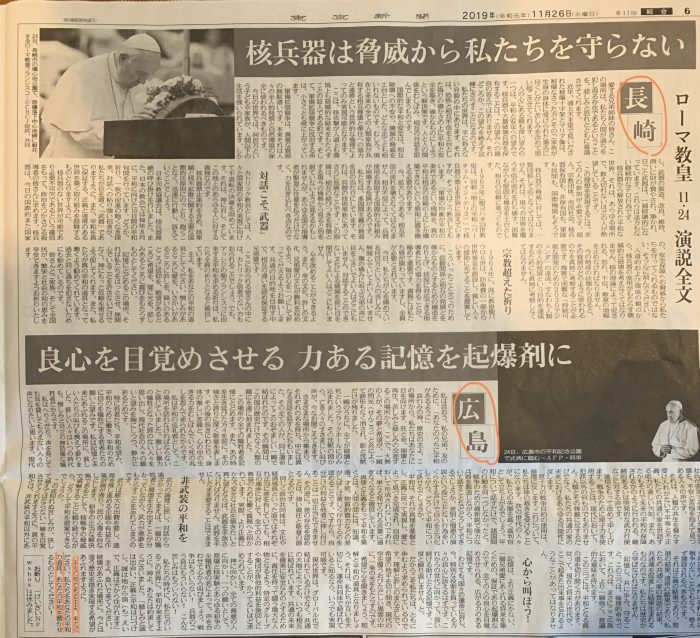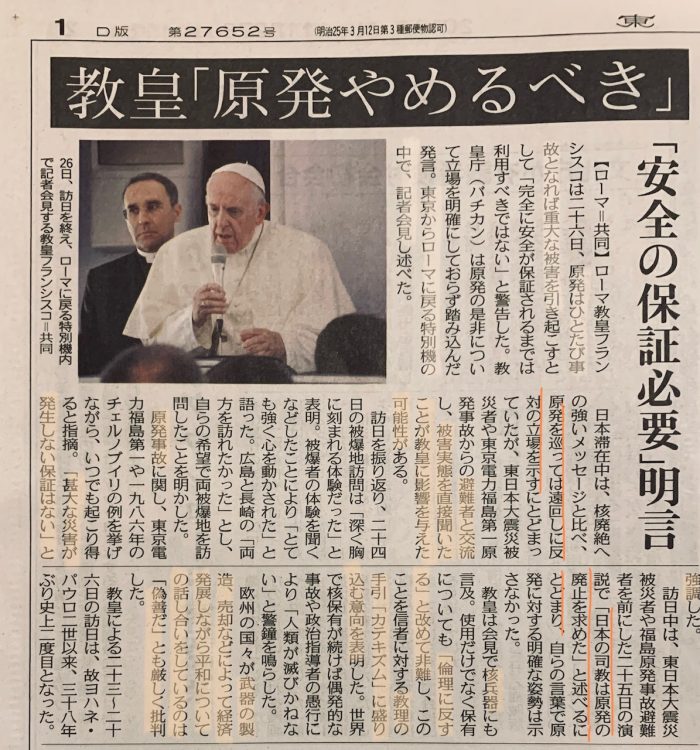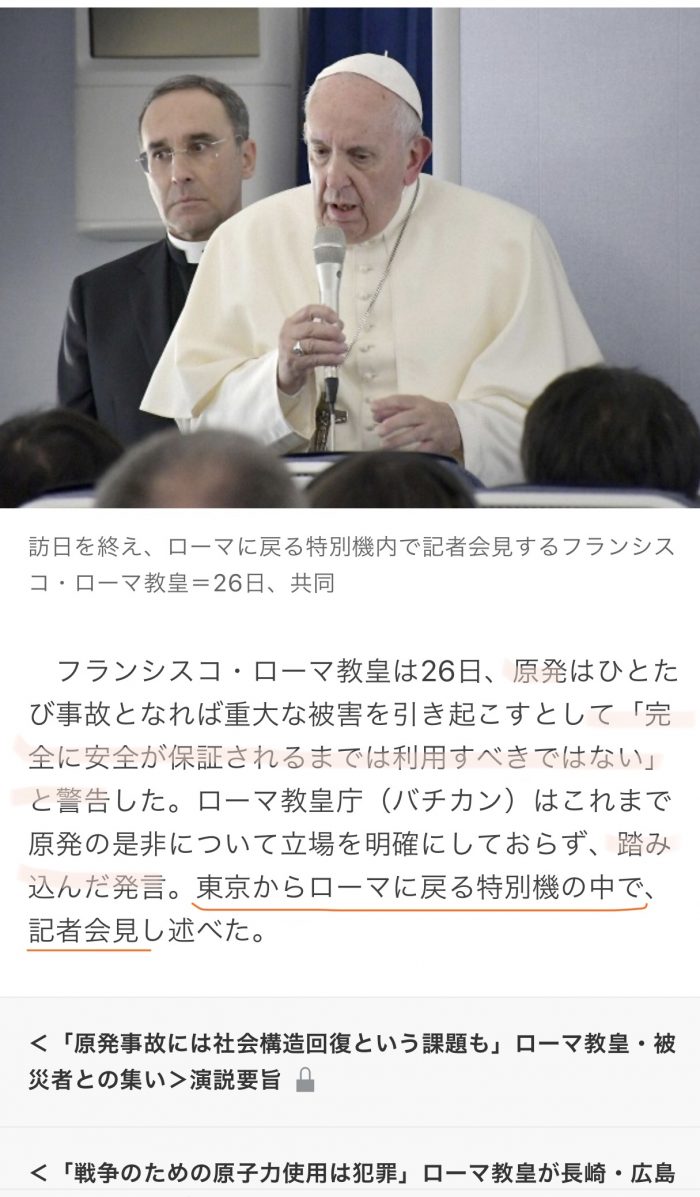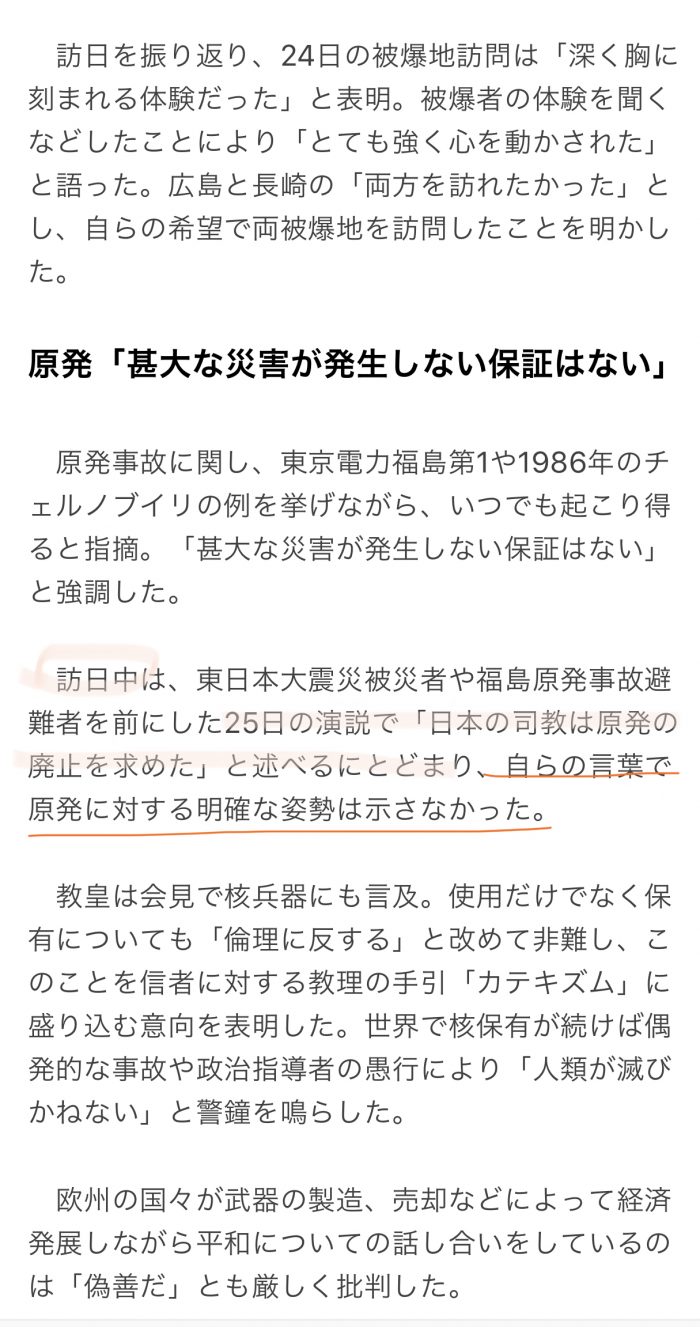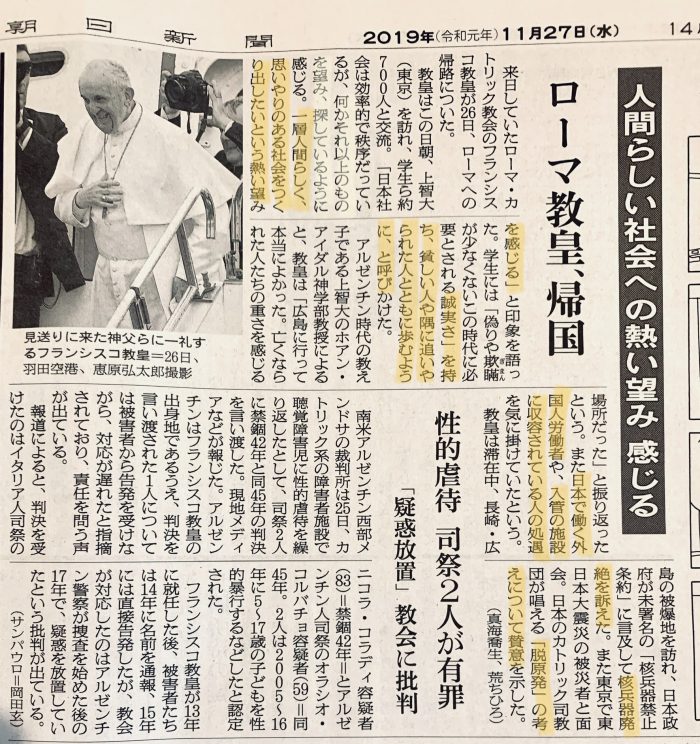<奈良1> 2019.12.31
覚園寺_The temple of Autumn leaves
◆ “Pacem in Terris” by Pope Francis
「 わたしは平和の巡礼者として、この場所を訪れなければならないと感じていました。激しい暴力の犠牲となった罪のない人々を思い出し、現代社会の人々の願いと望みを胸にしつつ、静かに祈るためです 。原子力の戦争目的の使用は倫理に反します。より正義にかなう安全な社会を築きたいと真に望むならば、武器を手放さなければなりません 」・・長い祈りの人生から発せられた〝真理”,〝真実のことば”に、心を動かされら人がきっと多いと思う。
戦争はもういらない! こんな苦しみはもういらない!
神に向かい、すべての善意の人に向かい、一つの願いとして、原爆と核実験とあらゆる紛争のすべての犠牲者の名によって、声を合わせて叫びましょう。戦争はもういらない! 兵器の轟音(ごうおん)はもういらない! こんな苦しみはもういらない!と。わたしたちの時代に、わたしたちのいるこの世界に、平和が来ますように。神よ、あなたは約束してくださいました。「いつくしみとまことは出会い、正義と平和は口づけし、まことは地からもえいで、正義は天から注がれます」(詩編85・11―12)。
主よ、急いで来てください。破壊があふれた場所に、今とは違う歴史を描き実現する希望があふれますように。平和の君である主よ、来てください。わたしたちをあなたの平和の道具、あなたの平和を響かせるものとしてください!わたしの兄弟と仲間と、そしてあなたと共に、わたしは「平和」といいます。
Full text of pope’s message in Hiroshima
Pope Francis arrives at the Peace Memorial Park in Hiroshima on Nov. 24, 2019. (Kyodo)
HIROSHIMA (Kyodo) — The following is the official translation of the full text of a message Pope Francis delivered Sunday in an address in Hiroshima.
“For love of my brethren and friends, I say: Peace upon you!” (Ps 122:8).
God of mercy and Lord of history, to you we lift up our eyes from this place, where death and life have met, loss and rebirth, suffering and compassion.
Here, in an incandescent burst of lightning and fire, so many men and women, so many dreams and hopes, disappeared, leaving behind only shadows and silence. In barely an instant, everything was devoured by a black hole of destruction and death. From that abyss of silence, we continue even today to hear the cries of those who are no longer. They came from different places, had different names, and some spoke different languages. Yet all were united in the same fate, in a terrifying hour that left its mark forever not only on the history of this country, but on the face of humanity.
Here I pay homage to all the victims, and I bow before the strength and dignity of those who, having survived those first moments, for years afterward bore in the flesh immense suffering, and in their spirit seeds of death that drained their vital energy.
I felt a duty to come here as a pilgrim of peace, to stand in silent prayer, to recall the innocent victims of such violence, and to bear in my heart the prayers and yearnings of the men and women of our time, especially the young, who long for peace, who work for peace and who sacrifice themselves for peace. I have come to this place of memory and of hope for the future, bringing with me the cry of the poor who are always the most helpless victims of hatred and conflict.
It is my humble desire to be the voice of the voiceless, who witness with concern and anguish the growing tensions of our own time: the unacceptable inequalities and injustices that threaten human coexistence, the grave inability to care for our common home, and the constant outbreak of armed conflict, as if these could guarantee a future of peace.
With deep conviction I wish once more to declare that the use of atomic energy for purposes of war is today, more than ever, a crime not only against the dignity of human beings but against any possible future for our common home. The use of atomic energy for purposes of war is immoral. We will be judged on this. Future generations will rise to condemn our failure if we spoke of peace but did not act to bring it about among the peoples of the earth. How can we speak of peace even as we build terrifying new weapons of war? How can we speak about peace even as we justify illegitimate actions by speeches filled with discrimination and hate?
I am convinced that peace is no more than an empty word unless it is founded on truth, built up in justice, animated and perfected by charity, and attained in freedom (cf. St. John XXIII, Pacem in Terris, 37).
Building peace in truth and justice entails acknowledging that “people frequently differ widely in knowledge, virtue, intelligence and wealth” (ibid., 87), and that this can never justify the attempt to impose our own particular interests upon others. Indeed, those differences call for even greater responsibility and respect. Political communities may legitimately differ from one another in terms of culture or economic development, but all are called to commit themselves to work “for the common cause,” for the good of all (ibid., 88).
Indeed, if we really want to build a more just and secure society, we must let the weapons fall from our hands. “No one can love with offensive weapons in their hands” (St. Paul VI, U.N. Address, Oct. 4, 1965, 10). When we yield to the logic of arms and distance ourselves from the practice of dialogue, we forget to our detriment that, even before causing victims and ruination, weapons can create nightmares; “they call for enormous expenses, interrupt projects of solidarity and of useful labor, and warp the outlook of nations” (ibid.).
How can we propose peace if we constantly invoke the threat of nuclear war as a legitimate recourse for the resolution of conflicts? May the abyss of pain endured here remind us of boundaries that must never be crossed. A true peace can only be an unarmed peace. For “peace is not merely the absence of war…but must be built up ceaselessly” (Gaudium et Spes, 78). It is the fruit of justice, development, solidarity, care for our common home and the promotion of the common good, as we have learned from the lessons of history.
To remember, to journey together, to protect. These are three moral imperatives that here in Hiroshima assume even more powerful and universal significance, and can open a true path to peace. For this reason, we cannot allow present and future generations to lose the memory of what happened here. It is a memory that ensures and encourages the building of a more fair and fraternal future; an expansive memory, capable of awakening the consciences of all men and women, especially those who today play a crucial role in the destiny of the nations; a living memory that helps us say in every generation: never again!
That is why we are called to journey together with a gaze of understanding and forgiveness, to open the horizon to hope and to bring a ray of light amid the many clouds that today darken the sky. Let us open our hearts to hope, and become instruments of reconciliation and peace. This will always be possible if we are able to protect one another and realize that we are joined by a common destiny. Our world, interconnected not only by globalization but by the very earth we have always shared, demands, today more than ever, that interests exclusive to certain groups or sectors be left to one side, in order to achieve the greatness of those who struggle co-responsibly to ensure a common future.
In a single plea to God and to all men and women of good will, on behalf of all the victims of atomic bombings and experiments, and of all conflicts, let us together cry out: Never again war, never again the clash of arms, never again so much suffering! May peace come in our time and to our world. O God, you have promised us that “mercy and faithfulness have met, justice and peace have embraced; faithfulness shall spring from the earth, and justice look down from heaven” (Ps 84:11-12).
Come, Lord, for it is late, and where destruction has abounded, may hope also abound that we can write and achieve a different future. Come, Lord, Prince of Peace! Make us instruments and reflections of your peace!
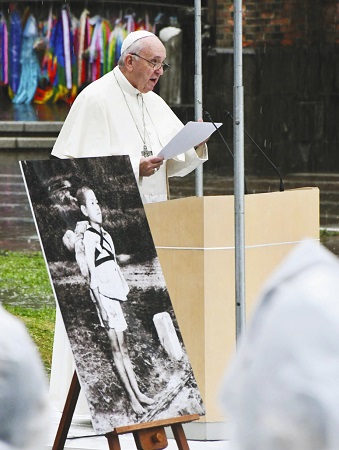
Pope Francis in Nagasaki says world without nuke arms ‘possible, necessary’ November 24, 2019 (Mainichi Japan)
Pope wants to officialize immorality of nuke arms possession
THE ASSOCIATED PRESS November 28, 2019 at 07:30 JST
Pope Francis speaks during a news conference onboard the papal plane on his flight back from a trip to Thailand and Japan on Nov. 26. (Pool Photo via AP)
ABOARD THE PAPAL PLANE–Pope Francis is planning to change official Catholic Church teaching to declare the use and possession of atomic weapons as “immoral,” a move that makes clear that his rejection of the Cold War-era doctrine of deterrence is to be official church policy.
Francis had declared the possession of nuclear weapons immoral on Sunday in Hiroshima during an emotional encounter with survivors of the U.S. atomic bomb.
On Tuesday, during a press conference en route home from Japan, Francis indicated that his Hiroshima address should be considered part of his magisterium, or official church teaching.
“This must go in the Catechism of the Catholic Church,” he said, referring to the published compendium of official church teaching.
“Not just the use, also the possession,” he said. “Because an accident of possession, or the insanity of a leader or someone, can destroy humanity.”
Francis first articulated his opposition to the doctrine of deterrence in 2017, during a Vatican conference, when he said the possession of nuclear weapons was “to be condemned.”
The shift upended three decades of the Vatican’s tacit acceptance of nuclear arsenals. Starting in 1982, St. John Paul II had held that deterrence could be morally acceptable in the interim as long as it was used as a step toward mutual, verifiable disarmament.
In the ensuing years, however, the Holy See has watched as arms control treaties collapsed, new nuclear powers emerged and the policy of assured mutual destruction resulted in a permanent stockpiling of bombs.
Francis also went further Tuesday in his comments on nuclear energy, saying he would rule out its use until scientists can offer “total security” to ensure that accidents, natural disasters and “crazed” individuals won’t destroy humanity and the environment with nuclear fallout.
Francis offered his “personal opinion” that went beyond the “concern” he expressed in public a day earlier during a meeting with survivors of the 2011 Fukushima nuclear disaster.
The Japanese government strongly backs nuclear energy despite the 2011 “triple disaster,” in which three Fukushima nuclear reactors partially melted down after an earthquake triggered a tsunami. The disaster spewed nuclear fallout across the region and at one point forced the evacuation of 160,000 people.
“I have a personal opinion,” Francis said. “I would not use nuclear energy as long as there’s not a total security on the use.”

◆ 「Akie sheets」for “Cherry Party”
わ!まだ「迷惑さん」が存在感をだした。TVや新聞に載るたび目を背けつつ覗いていたけど・・・。悪名高い「桜を見る会」を裏からチェック!

どんどん、佳境に入ってきました!
12/10 まだまだ続く「桜を見る会」・・・これがAbeへのトドメとなるか!石川教授の「民主主義の問題を考えるのに、”桜を見る会”問題より本質的な問題はどこにあるのか!!」がすばらしい。
「桜を見る会」考(毎日新聞)・・・・「桜を見る会」が単なるAkieの推薦枠の問題ではないことが明らかになっていく。
サクラ問題で最も切込みが鋭い美奈子さんに再登場してもらおう(2020/11/25)
サクラ問題の大展開 こちら
◆ Abeの`responsibility`と`accountability`

Abeの無理押し好き勝手な政権運営がいよいよ極まり、園遊会に並ぶ公的行事「桜を見る会」に自分の選挙区のおじちゃんおばちゃんを前後の見境なく招待したので目も当てられない状況になっている。この事件から見える日本の政治の病理とは・・・
「安倍首相、説明しないがヤジ飛ばす 2つの責任を考える」
閣僚の連続辞任に、首相主催の「桜を見る会」をめぐる疑念や疑惑。繰り返される不祥事にも、安倍晋三首相が進んで国会で説明する様子はうかがえない。議論する、説明する、責任を果たすとは、どういうことなのか。長谷部恭男・早稲田大教授(憲法)と杉田敦・法政大教授(政治理論)に語り合ってもらった。(構成 編集委員・高橋純子さん)
杉田敦・法政大教授 日本が長く「お手本」としてきた英国の議会が、EU離脱をめぐって揺れています。9月には、離脱期限が迫るなか、約5週間にもわたって議会を閉会するという政府の決定の合法性が司法審査で問われ、最高裁が違法と判決した。高度に政治的な問題については判断しないという「統治行為」論に逃げ込む日本の司法を見慣れている身には、新鮮な驚きでした。
長谷部恭男・早稲田大教授 政府側は、議会をいつまで閉会するかは政治判断で、裁判所が口出しする問題ではない「統治行為」だと主張しました。しかし最高裁は、国政上の重大問題について議会による審議を妨げる決定は、合理的な理由がなければ許されないと結論した。全員一致の判決だったことに、最高裁の覚悟を感じます。
杉田 国民投票から3年、英国議会はのたうち回ってきましたが、政府の暴走に対して、審議を通じてブレーキをかけてきたのも事実です。与党議員が議場の真ん中を渡って野党席に移るという印象的な場面もあり、与野党が真っ向議論を戦わせています。民主主義は単なる多数決ではない。そこに至るまでのプロセスが大事なので、時間と手間がかかります。一方、日本の国会は、はぐらかしの答弁が横行し、与党議員は政府方針を追認するだけ。議論の場でなく表決だけの場と化しています。
長谷部 安倍政権は、(つづきは記事で)
「桜を見る会」問題
11/26、27


16年ぶりの再会, Dushさん from S.L.
(検索されないようにフルネームは書かない)16年も前の、それも大学院の友人宅で、その奥様として物静かに家にいらしたその人と、スリランカ・コロンボのご自宅で会った。それ以来、一度も連絡もしたことがなかったけどIndikaを通して消息は知っていた。その人とこの秋に東京で2回目の出会い。16年前、彼女の家では、彼女と家のお手伝いの人が作った大ごちそうをいただきながら、当時生まれたばかりの赤ちゃん(女の子だった!)をずっと抱っこしていた。かわいかったから。その人はもう16歳になったと。
東京の西、ここから2時間かかる昭和記念公園の近くの駅で、感動の再会。
一番驚いたことは、彼女が普通の housewife として生きてきたのではなく、 (そして 素敵なSri Lankan dancer であるだけでなく)立派な学歴、キャリアを持つ検察官だったこと。Anti Corruption measures が彼女のテーマ。今後はその分野からの教育問題にもエリアを広げ、更にコミュニケーション理論も取り入れた勉強をするために日本への派遣研修に臨んだ。約40日の研究・研修は大変ハードだったらしい。
Minimal Office にて
日本について学ぶための機会を作ってほしい、でも「ストレスがかかりすぎるのでAkemiの家族の範囲で」との希望に応えて、新宿のKenのOfficeでミーティングを開いた。彼女は大変喜んでくれたと思う。楽しい再会だった。もちろんこちらもストレスはあったけど、役に立てて嬉しかった。
Hello, how are you? I noticed you visited western Japan. The plan for nov 10 is; I pick you up at the place we met at H.N. Sta at 14:00 pm, then take you to the place you meet my son Ken and my daughter K at Ken’s office in Shinjuku ward, Tokyo by train. Maybe Ak, my daughter’s husband, and little Shimon, 7 yo my grandson, will join us. It would be a casual relaxed gathering, just talk about real lives in Tokyo. And we would very much like to know about your study in Tokyo, and of course your life in Sri Lanka! It takes about 40 minutes from the sta to the office in Shinjuku. I’ll send you back to H. N., don’t worry! You could come back to your dorm at around 19:00. If it is OK for you, I’m very happy to organize the meeting. Akemi
彼女からの温かいメッセージがすべてを物語る良い出会いだった。
Thanks a lot akemi San… Time flies…. We grow old…. Friendship remains…
May you and your loving family blessed with good health…

スリランカ(1)/セイロン島
インド亜大陸の南の島。かつてはセイロン島とも言われた。🌷アーリヤ系シンハラ人が上座部仏教を受容、インド洋交易圏の中心地として栄えた。そこに南インドからヒンドゥー教との💐ドラヴィダ系タミル人が移住し、多数派シンハラ人による少数派タミル人との民族対立が起きている。・ページ内の見だしリスト
スリランカ史の要点
スリランカ Yahoo Mapシンハラ王国と上座部仏教 アーリア系のシンハラ人がシンハラ王国を築いた。すでに前4世紀に北インドを統一していたマウリヤ朝では仏教が盛んになり、前240年ごろ、アショーカ王が王子マヒンダをスリランカに派遣して仏教を伝え、スリランカの王も仏教に帰依し、以後この地は上座部仏教の中心地として栄えた。
インド洋交易圏 南インドの島嶼であるこの島はインド洋の海上交易に重要な役割を果たし、また肉桂(シナモン)などの香辛料の産地であった。前2世紀には南インドのタミル人勢力であるチョーラ朝とパーンディヤ朝の侵入を受ける。紀元後1世紀以降には、ローマ帝国と中国を結ぶインド洋交易圏での季節風貿易が活発になり、中継貿易を行う港市国家として栄えた。
植民地支配 🌷16世紀には❗️ポルトガル人が進出し、さらに1657年には❗️オランダが植民地支配を開始した。ナポレオン戦争中に❗️イギリスが占領し、その後の1815年以来、イギリスの植民地としてセイロンと言われていた。1946年にイギリス連邦内の共和国として独立したが、その後もしばらくセイロンと称していたが、1972年に国号をスリランカに改称した。
セイロンとスリランカ セイロンというのは、獅子の子孫という伝説のあるヴィジャヤ王(前5世紀)を最初の統治者とするので📝シンハラドヴィーバ(獅子の国)とわれたのが📝アラビア人がセランディーブと訛り、ポルトガル人によってセイラーン、📝イギリス人がセイロンと言うようになったもの。従って、セイロン Ceylon と言うのは正しくなく、現在では歴史的にも現地の人の使うスリランカに言いかえている。ただし、植民地としてはセイロン、またはセイロン島ということもあるので注意すること。
民族紛争 商業活動が活発になるに従って、次第にヒンドゥー教を信仰するドラヴィダ系のタミル人が移住するようになり、先住民で多数派である仏教徒シンハラ人(インドヨーロッパ語族のアーリア系)との対立が始まった。1970年代からシンハラ人とタミル人の民族対立が深刻となり、1983年から内戦状態となった。2002年にようやく停戦に漕ぎ着けたが、翌年戦闘が再開され、さらに長期化した。政府軍が武力制圧を強め、2009年にタミル人側が敗北宣言を出し、25年以上にわたった内戦は終結した。しかしまだ完全に鎮静していない。 → タミル人問題
(2)ヨーロッパ勢力の到来と植民地化
16世紀にポルトガル、ついでオランダが進出。ウィーン議定書によってイギリスの植民地となり、第2次世界大戦後に独立した。しかし、現在でも民族・宗教対立を抱えている。
ポルトガル人の進出ポルトガルのインド副王に任命されたフランシスコ・ダ・アルメイダの息子のロウレンソ=アルメイダは、1505年、インド最南端のコモリン岬近くのキロンに遠征、ポルトガル人商館員が殺害されたことへの報復として砲撃した。この高飛車な行動の後、ロウレンソはその年のうちにセイロンに達した。ポルトガル人は1510年までにセイロン島の支配を固め、この地の特産の香辛料である肉桂を獲得し、さらに東南アジアの香料諸島であるモルッカ諸島への中継地としてこの地を抑えた。その後150年間、この島はポルトガルの支配することとなった。
オランダの進出 ポルトガルの支配が長く続いたが、ついで17世紀にオランダ(ネーデルラント連邦共和国)が進出、1602年には早くもオランダ艦隊が姿を現し、1656年にポルトガル人を駆逐して植民地とし、❗️肉桂はオランダに大きな富をもたらした。
イギリスの支配 オランダと競いながら海上帝国として支配権を広げてきたイギリスは、フランス革命の影響でネーデルラント連邦共和国が崩壊したのに乗じて、🌷1796年にスリランカを占領し、ナポレオン戦争後の1815年のウィーン会議の結果であるウィーン議定書によってその領有を認められた。それ以後、イギリスはこの島をセイロン島と称して植民地として支配し、主として本国向けの茶(紅茶)のプランテーション栽培を行った。
(3)独立とスリランカへの国号変更
1948年、イギリス連邦の一員として独立する。1972年から国号を植民地時代のセイロンをやめ、本来のスリランカに戻した。

1815年以来、スリランカはインドと同様にイギリス植民地支配が続き、セイロンといわれていた。ようやく第二次世界大戦後のインドの独立と連動して、1948年にイギリス連邦内の自治国として独立した。
1954年にはインドのネルーの提唱で、南アジア5ヵ国首脳会議がスリランカの首都コロンボで開催された。このコロンボ会議での合意にもとづいて、翌年のインドネシア・バンドンでの第1回アジア・アフリカ会議が開催された。
1956年からスリランカの首相を務めたバンダラナイケは世界初の女性首相として知られ、第三世界のリーダーの一人として活躍した。
国号をスリランカに改称 1972年にイギリスから完全独立を果たし、国号もセイロンから本来の民族的呼称であるスリランカと改称した。古来、この地はシンハラ人の土地で、彼らは小乗仏教が伝わってからの仏教国であったが、次第にインド本土からヒンドゥー教徒であるタミル人が移住してきて、両者の間の宗教対立が政治的な対立となり、少数派のタミル人による分離独立運動が現在も続いている。
スリランカの民族と宗教 現在は人口比ではシンハラ人(72.9%)、タミル人(18.0%)、宗教人口では仏教徒(70.0%)、ヒンドゥ教徒(10.0%)、イスラム教徒(8.5%)、ローマン・カトリック教徒(11.3%)となっている(外務省ホームページによる)。首都はスリ・ジャヤワルダナプラ・コッテ。
(4)スリランカ タミル人の分離運動
1970年代からシンハラ人とタミル人の対立が激化。1983年から内戦となり、2009年にようやく停戦となった。
タミル人問題 独立後の1950年代、多数派で仏教徒であるシンハラ人を優遇する、シンハラ語の公用化や仏教保護政策が採られたことに対して、少数派でヒンドゥー教徒のタミル人が反発し、1970年代からタミル人の分離独立運動が始まった。 → タミル人問題
スリランカ内戦 1983年に政府軍とタミル人の武装組織「タミール・イーラム解放の虎(LTTE)」の内戦が勃発、シンハラ人の政府はタミル語も公用語とするなど妥協を図ったがうまくいかず、戦闘が激化した。1987年にインドのラジブ=ガンディー首相が介入し、国際問題化した。反発したLTTEによってラジブ=ガンディーが暗殺されるという事態となった。
2002年、ノルウェーの仲介で両派は停戦に合意したが、翌年には停戦は延期され、06年に強硬派のラジャパクサ大統領がLTTEへの攻撃を開始し、内戦がさらに激化し、LTTE側は北部を拠点にテロ活動を活発化させた。2008年には正式に停戦が破棄され、政府軍の攻勢が強まり、🌷2009年5月、LTTE側は敗北宣言、内戦は一応終結した。
内戦終結後の混迷 しかし現在もなお、多数派民族のシンハラ人(仏教徒)とタミル人(ヒンドゥー教徒)の民族対立が続いており、今度は反政府活動を制圧した多数派シンハラ人による、タミル人やムスリムなど少数派への差別的な行動が問題とされている。
さらに🌷2019年4月にはスリランカ国内で、イスラーム過激派による同時多発、自爆テロ事件が発生、この時はキリスト教会が襲撃されるという複雑な宗教対立が起こっている。この事件は❗️イスラーム国系の過激派の犯行とされている。







































